Please note, links to all the Freedom Essays are included at the end of this essay. Open any essay to read, print, download, share or listen to (as an audio).
More Good Info Email 7
Freedom Webinar 1
The Freedom Webinar series, which began in 2015, contains both introductory material and more advanced analysis of the human condition, and so is very effective in conveying the depth of insight into human behaviour that understanding of the human condition now makes possible.
In this first webinar, biologist Jeremy Griffith embarks on a wide-ranging and interactive discussion on key aspects of his explanation of the human condition, including the psychological process of Resignation that takes place during adolescence and the symbolism of the sun as a metaphor for knowledge, before concluding with a robust discussion about religion’s role in humanity’s journey to find self-understanding. (Note, the first part of this webinar forms the basis of Video 12 that appears in the Main Videos towards the top of our World Transformation Movement homepage, which you can also access at HumanCondition.com.)
Click on the player below to watch the complete webinar, or any of its 15 parts:
Make and see comments here
This video also appears on our Main Collection of Videos about the Human Condition page.
The Transcript of this Webinar
Broadcast 20 August 2015
Part 1 Introduction
Jeremy Griffith: I want to begin by introducing the issue of the human condition. I might start by putting up this little drawing I’ve done. It shows the proverbial ‘elephant in the living room’ of our lives, which is a metaphor that refers to an extremely important issue or subject, but one that no one acknowledges.
Well, this subject of the human condition is the elephant of elephants in our living rooms. In fact, you can see the elephant is absolutely filling the room to the extent that there is hardly any space left. And this is what the human condition is—the most fundamental and serious of issues but one that has been so difficult to deal with that we’ve learnt to just block it out of our mind.
So we say ‘Pass the salt’, and ‘How are you going with your football team?’, etc, etc. All this dialogue takes place and yet the huge elephant in the room is being ignored. That’s how amazing the situation has been—there’s this massive issue that no one has been addressing!
Part 2 What is the human condition?
Jeremy: Okay, so what is the human condition and why have we been living in such fear of it that we can hardly recognise it even exists, and yet it’s the underlying issue in all of human life?
The human condition is the issue of ‘good and evil’ in human makeup—the issue of why aren’t we humans ideally behaved. Since the universally accepted ideals are to be cooperative, loving and selfless, why on earth are we the complete opposite—competitive, aggressive and selfish? In fact, why are we so ruthlessly competitive and selfish and brutal that life has become all but unbearable and we’ve nearly destroyed our own planet!? I mean, why do we thinking, reasoning, rational, immensely clever, supposedly sensible beings behave so badly and cause so much suffering and devastation?
The French polymath Blaise Pascal spelt out the full horror of our contradictory nature when he wrote: ‘What a chimera then is man! What a novelty [novelty because we have this amazing conscious mind], what a monster, what a chaos, what a contradiction, what a prodigy! [capable of being a] Judge of all things, [yet an] imbecile worm of the earth, repository of truth, a sewer of uncertainty and error, [humans are] the glory and the scum of the universe!’ (Pensées, 1669). William Shakespeare makes a similar observation in Hamlet, writing, ‘What a piece of work is a man! How noble in reason! How infinite in faculty!…In action how like an angel! In apprehension how like a god! The beauty of the world! The paragon of animals! And yet, to me, what is this quintessence of dust? [Brutal and barbaric] Man delights not me’ (Hamlet, 1603)!!
Yes, half of the human head is this giant association cortex. We have this incredible brain that can think and reason. We are the most brilliantly clever of creatures, the ones who are, as Pascal and Shakespeare said, ‘like a god’ in our ‘infinite’ ‘faculty’ of ‘reason’ and ‘apprehension’, a glorious ‘angel’-like prodigy capable of being ‘judge of all things’ and a ‘repository of truth’. Yet we are also the meanest of creatures, the most vicious, most capable of inflicting pain, cruelty, suffering and degradation—a species that behaves so appallingly we seem to be ‘monsters’, ‘imbecile[s]’, ‘a sewer of uncertainty and error’ and ‘chaos’, ‘this quintessence of dust’, ‘the scum of the universe’!
So there is this huge paradox about being a human. How could we humans possibly be considered good when all the evidence seems to unequivocally indicate we are a flawed, bad, even evil, species? Are we some sort of evolutionary mistake? A cancer in the universe? Or could we possibly be divine beings?
Now, this issue of our contradictory nature, this question of questions of our human condition, is such a fearful question that the more we thought about it, the more depressed our thinking became. As a result, we humans learnt to block out the issue—avoid thinking about it. As the famous psychoanalyst Carl Jung said, ‘When it [our shadow, the darker aspects of our nature] appears…it is quite within the bounds of possibility for a man to recognize the relative evil of his nature, but it is a rare and shattering experience for him to gaze into the face of absolute evil’ (Aion: Researches into the Phenomenology of the Self, 1959; tr. R. Hull, The Collected Works of C.G. Jung, Vol. 9/2, p.10). [Learn more about what exactly the human condition is in The Great Guilt that causes the Deaf Effect and Video/F. Essay 10.]
Yes, this ‘face of absolute evil’ is the ‘shattering’ possibility—if we humans allow our minds to think about it—that we might indeed be a terrible mistake. So there is this huge dilemma about being a human, that without understanding of, we had no choice but to block out of our mind—to, in fact, resign ourselves to not asking and addressing that question until such time we could find an answer to it.
Part 3 Resignation evidences our fear of the human condition
Jeremy: That might all sound extraordinary, but as all humans grow up they do start thinking about the imperfection of human existence—they do start wrestling with this issue of the human condition—from about the age of 12 onwards. And for some reason that they don’t understand, adults don’t seem to want to talk about this huge issue, this huge ‘elephant’, this horrific issue of why aren’t humans ideally behaved. And so adolescents are left to wrestle with the issue on their own, and their thinking goes deeper and deeper, until at about 13 or 14 years of age the issue of the imperfection of the world around them starts to develop into the issue of why aren’t they themselves ideally behaved.
They start to discover aspects of anger, egocentricity, selfishness and indifference to others within themselves. And so the issue of the human condition ‘without’ becomes the issue of the human condition ‘within’, and when that happens adolescents begin to become suicidally depressed. And to avoid that horrific self-confrontation they are left with no choice but to resign themselves to never again looking at that issue of the human condition. This transition from confronting the human condition to living in denial of it is the process I refer to as ‘Resignation’.
Catherine Yeulet/iStockphoto; yamasan/AdobeStock; Al Troin/AdobeStock
When adolescents are between the ages of 12 and 15 teachers and parents do find them unreachable—they’re in their room playing loud music and they snap when they’re talked to. Sure, we blame these well-known struggles of adolescence on the hormonal upheaval that accompanies puberty, the so-called ‘puberty blues’, but it’s not due to puberty and hormones. The clue is in the word ‘blues’, which means depression; it’s a psychological problem, not a physical one. And sure, at 13 or 14, kids are entering sexual maturity, but physically that’s about the healthiest time in their life. For them to be seriously depressed to the point that they get glandular fever, a debilitating illness that often occurs in mid-adolescence, there’s clearly a much more serious, psychological battle going on. But because adults can’t deal with the issue of the human condition, they have come up with this excuse that the adolescent is ‘just going through puberty’, that it’s a puberty-related ‘kissing disease’, that it’s their surging hormones. But humans have been living with the adjustment of puberty since animals first became sexual, so we’re hugely adapted to that. What we haven’t become adapted to is the horror of the imperfections of human life and trying to understand that. We are thinking, understanding beings, so when we are adolescents we try to make sense of that imperfection, but adults, being already resigned, don’t want to go near the subject. I mean, two days after adolescents have resigned you can hardly get them to remember that terrifying corner where they were still facing the human condition, so terrible was the encounter. You can read about Resignation in F. Essay 30, and in chapter 2:2 of my book FREEDOM: The End Of The Human Condition, but the point of mentioning it is that it provides the easiest way to evidence just how fearful a subject the human condition has been—just how serious this ‘elephant’ is that we can’t look at.
The following then is a rare description of an adult—a psychiatrist—talking to an adolescent going through Resignation. It’s from the American Pulitzer Prize-winning child psychiatrist Robert Coles: ‘I tell of the loneliness many young people feel…It’s a loneliness that has to do with a self-imposed judgment of sorts…I remember…a young man of fifteen who engaged in light banter, only to shut down, shake his head, refuse to talk at all when his own life and troubles became the subject at hand. He had stopped going to school…he sat in his room for hours listening to rock music, the door closed…I asked him about his head-shaking behavior: I wondered whom he was thereby addressing. He replied: “No one.” I hesitated, gulped a bit as I took a chance: “Not yourself?” He looked right at me now in a sustained stare, for the first time. “Why do you say that?” [he asked]…I decided not to answer the question in the manner that I was trained [basically, ‘trained’ in avoiding what the human condition really is]…Instead, with some unease…I heard myself saying this: “I’ve been there; I remember being there—remember when I felt I couldn’t say a word to anyone”…The young man kept staring at me, didn’t speak…When he took out his handkerchief and wiped his eyes, I realized they had begun to fill’ (The Moral Intelligence of Children, 1996, pp.143-144 of 218).
Mygate/Shutterstock; Susan Stevenson/AdobeStock; Sabphoto/AdobeStock
The boy was in tears because Coles had reached him with some recognition and appreciation of what he was so desperately wrestling with. Coles had shown some honesty about what the boy could see and was struggling with, namely the horror of the utter hypocrisy of human life, including his own. The boy is in the midst of Resignation, of accepting that he has to give up trying to make sense of the human condition, this amazing riddle of why humans are so divisively behaved when ideally they should be the complete opposite. And no one’s talking about it because once you’ve resigned, you are on a mission to escape that dark corner and that dark issue. You’re on a mission of self-distraction. Adults just tell jokes all day and talk about the weather and just keep babbling away about meaningless things, keeping away from that dreadful issue.
Stanislaw Mikulski/AdobeStock; mitarart/AdobeStock
As you’ll see in The Great Guilt that causes the Deaf Effect and chapter 2 of FREEDOM, to make sense of adult behaviour all you have to do is factor in that they are resigned and are living in denial of the human condition—that all their behaviour is being driven by maintaining that denial.
So, yes, the human condition has been a horrific, unconfrontable subject while we couldn’t explain it. I’ve heard it described as ‘the personal unspeakable’ and ‘the black box inside of humans they can’t go near’ (personal conversations, WTM records, Feb. 1995). So that’s why this issue has been the great elephant in our living room, the all important issue, but the one issue adults could hardly admit existed, let alone think about.
Part 4 Plato’s Cave where we hide from the human condition
Jeremy: To now supply some evidence of how pervasive this denial of this horrific subject of the human condition is. Philosophy is ‘the study of truths underlying all reality’, and the greatest philosopher of all time is generally considered to be Plato. Indeed, Alfred North Whitehead, who was considered one of the greatest philosophers of the twentieth century, said that all of philosophy is merely ‘a series of footnotes to Plato’. So whatever Plato had to say was obviously incredibly profound.
So Plato is the greatest philosopher in the study of the truths underlying all reality; what then was his central insight? Well, Plato’s most highly regarded work is called The Republic and at the centre of The Republic is the allegory of a cave where humans are hiding from the issue of the human condition. So this is the greatest philosopher of all time, philosophy again being ‘the study of truths underlying all reality’, and he’s saying that what I have to tell you is that the most dominant feature about human existence is that humans are so afraid of this issue of the human condition that they are living deep underground in a cave so they don’t have to face it. They have created a whole world of block-out and denial inside this cave.
This is what Plato actually wrote, and this was written c.360 BC: ‘I want you to go on to picture the enlightenment or ignorance of our human conditions somewhat as follows. Imagine an underground chamber, like a cave with an entrance open to the daylight and running a long way underground. In this chamber are men who have been prisoners there.’ Now, in this cave allegory Plato went on to describe how the cave’s exit is blocked by a fire, such that if one of the prisoners were ‘to stand up and turn his head and look and walk towards the fire; all these actions would be painful…and he would [have to] turn back and take refuge’ in the cave of ‘shadows’, which are only an ‘illusion’ of the real world outside the cave. The allegory makes clear that while ‘the light of the fire in the cave prison [corresponds] to the power of the sun’, and ‘the sun…makes the things we see visible’, such that without it we can only ‘see dimly and appear to be almost blind’, having to hide in the ‘cave’ of ‘illusion’ and endure ‘almost blind’ alienation was infinitely preferable to facing the searing, ‘painful’ ‘light’ of the ‘fire’/‘sun’ that would make ‘visible’ the unbearably depressing issue of ‘the imperfections of human life’. (See par. 83 of FREEDOM, or you can view all these quotes highlighted where they actually appear in The Republic at www.wtmsources.com/227.)
So, that is how serious and terrifying an issue the human condition has been—we humans are, according to this greatest philosopher, living deep underground, hiding in a cave of darkness, in order to cope. [You can read more about this block out in The Great Guilt that causes the Deaf Effect, and Plato’s cave analogy in the previous Video/F. Essay 11.]
Part 5 The ‘savage instincts’ excuse for our competitive behaviour
Jeremy: Now, it makes sense that in the absence of understanding of the human condition we needed to come up with some excuse for why we are divisively instead of cooperatively and lovingly behaved in order to cope with the negative implications. And so we’ve obviously done that. As explained in Video/F. Essay 2, we came up with the excuse that our behaviour is no different from that seen in the animal kingdom; that we humans are competitive, aggressive, and selfish because of our animal heritage. We argued that we are the victims of savage animal instincts within us that compel us to ruthlessly fight and compete for food, shelter, territory and a mate—that we are at the mercy of a biological need to reproduce our genes—and that’s why we’re being so competitive and aggressive and not cooperative and loving. [You can read more about the false savage instincts excuse, and the psychology behind its use, in Video/F. Essay 14 & F. Essay 20.]
But of course this reason that biologists today have been putting forward can’t be the real cause of our competitive and divisive behaviour, because descriptions of human behaviour such as egocentric, arrogant, inspired, depressed, deluded, pessimistic, optimistic, artificial, hateful, cynical, mean, immoral, guilt-ridden, evil, psychotic, neurotic, alienated, all recognise the involvement in our species of a unique, fully conscious thinking mind, that there’s a psychological dimension to our behaviour. Humans have suffered not from the genetic-opportunism-based, non-psychological animal condition, but the conscious-mind-based, PSYCHOLOGICALLY troubled HUMAN CONDITION.

While our competitive, aggressive and selfish behaviour has been blamed on brutal, must-reproduce-
your-genes animal instincts, the truth is humans have suffered not from the genetic-opportunism-
based, non-psychological animal condition, but the conscious-mind-based, PSYCHOLOGICALLY
troubled HUMAN CONDITION. This critical distinction is explained in Video/F. Essay 14 & F. Essay 20.
Of course, the other obvious reason that the old ‘animals are competitive and aggressive and that’s why we are’-defence simply doesn’t hold water is that we humans do not have competitive, aggressive instincts, but cooperative, loving, moral instincts, the expression of which, or voice within us, is what we call our conscience. In fact, the reason adolescents become so depressed during Resignation and why they don’t fall for and adopt the savage instincts excuse (at least not while they’re in the midst of Resignation—later on they grab it with glee, but before they’ve resigned they don’t buy it) is because their moral, instinctive self or soul makes them aware that ideally they should be cooperative and loving. The fundamental reason humans have a sense of guilt is because we have a moral conscience. As I fully explain in chapter 5 of FREEDOM, and summarise in F. Essay 21, our species’ instinctive heritage is one of being cooperative and loving, not of being competitive and aggressive.
So yes, in truth we do all know that the old ‘animals are competitive and aggressive and that’s why we are’-defence doesn’t hold water. It doesn’t explain our psychologically distressed, guilt-ridden human condition. So that’s where the human race and biology has been stalled, waiting, in an increasingly distressed state, for the real explanation for our psychologically troubled, guilt-ridden human condition that will finally make sense of the dilemma of human life—bring understanding and peace to the human mind at the most profound, fundamental, deep, fully accountable, truthful level.
So we needed the psychosis-addressing-and-solving, real explanation of the human condition. The excuse that we’re competitive and aggressive because of our animal heritage obviously helped us get by while we waited for the real explanation; it was part of the dishonest ‘shadows’ in the cave that Plato described, which were only an ‘illusion’ of the real world—a dishonesty that meant we could only ‘see dimly and appear to be almost blind’ to the truth about our human condition. But we’ve now reached the point where we desperately need that ‘blind[ness]’/alienation/psychosis-ending, real explanation, the one that really deals with and explains the psychological dilemma of the human condition. Bringing relieving understanding to the psychosis in humans is what finally alleviates that psychosis and brings about the transformation of the human race through the dignifying understanding of the dark side of ourselves—of our ‘shadow’, as Jung called it. It makes sense of the dark side of ourselves so no longer can it distress and trouble us.
Michael Leunig is an Australian cartoonist. Quite a few of his cartoons are in FREEDOM and the following is another deadly honest one. It shows this great tangle of confusion. I mean, what Leunig depicts is what it’s been like trying to make sense of human life up to the present. It’s just been impossible, just one gigantic mystery. How on earth do you make sense of this confusion? People talk to each other all day long, but they’re not penetrating the problem that we’re really burdened with; they’re not unravelling the tangle of what it is to be human. So it’s all just a big confusing mess.
Unless we found understanding of the human condition, we as a species would end in this total mess of confusion and bewilderment about why we are the way we are. The ultimate knowledge we needed was to understand the human condition. When we can finally make sense of that, the whole tangle will unravel. So Leunig’s cartoon is a very powerful metaphor of our state of ignorance—of not being able to understand ourselves, to make sense of the dark side of ourselves, to truthfully understand the psychosis within us, to understand where all the pain and suffering and frustration is coming from.
Part 6 The real biological explanation using the Adam Stork analogy
Jeremy: Okay, so that’s how important the explanation of the psychologically distressed, guilt-ridden human condition is. That dignifying understanding is the only thing that can really alleviate the suffering in the world!
I now want to present the redeeming and psychologically healing explanation of the human condition that I’m saying is fully accountable and therefore true, and which is presented fully in FREEDOM. [The explanation was introduced in THE Interview and Video/F. Essay 3, and there’s also a brief summary of it in Chapter 1 of FREEDOM, a fuller explanation in Chapter 3, and a presentation of it in Part 2 of the summary booklet, Transform Your Life And Save The World.]
To provide this explanation, I’ll use a simple analogy.
If you think honestly about the human situation, the explanation of our condition is not that hard to find if you consider what it is about humans that is unique: we are fully conscious. And if you think more about that, before we became a fully conscious species, we humans must have been controlled by instincts that were acquired through natural selection, as other animals are. And obviously when we became conscious, the conscious mind could make sense of experience, understand cause and effect. Nerves were originally developed for the coordination of movement in animals, but, once developed, their ability to store impressions—what we refer to as ‘memory’—gave rise to the potential to develop understanding of cause and effect. If you can remember past events, you can compare them with current events and you can deduce commonly occurring events, and on the basis of what’s commonly occurred in the past you can start to make predictions about what’s likely to occur in the future, which can provide further feedback to refine your insights further and further.
Now, if sufficiently developed, this ability to understand and make sense of experience, of cause and effect, means you can then understand/reason how experiences are related; you can become conscious. So presumably this huge ‘association cortex’, as it is called, in our head that associates or compares information and by so doing is able to make sense of experience, became, in our case, sufficiently developed for us to become fully conscious. [See F. Essay 24 for the explanation of how consciousness emerged in humans.] At that point, it follows that we humans would have been able to take control from our instincts for the management of our lives because now that we can understand how the world works, we can reason with ourselves how to do things. In other words, at a certain point, when we became conscious, we must have challenged our original instinctive orientations for the management of our lives. And if we think about that, it makes sense that there must have been a clash between these two aspects of ourselves—between our gene-based instinctive learning/orientating system and our newer conscious mind that could understand the world.
[F. Essay 53, which is titled The instinct vs intellect is the obvious and real explanation of the human condition, as all these great thinkers evidence, demonstrates how readily apparent the instinct vs intellect elements of the human condition are when someone is prepared to think honestly and truthfully about the subject. You can find a link to it at the end of this essay.]
So, using a very simple analogy, I will now create a scenario to simulate and explain the human condition and, in fact, all aspects of human life. The aim is to show you what would happen if we were to put a fully conscious mind inside the head of an animal that’s already instinctively controlled. So let’s grab a stork, a big bird (because we want him to have the capacity to carry this big brain), and let’s implant a fully conscious mind into its head. We’ll call him Adam Stork because this analogy has similarities to the story of the Garden of Eden, where Adam and Eve take the fruit from the tree of knowledge—they become conscious, and start searching for understanding. In that story, Adam and Eve, us humans, are banished as bad and evil. This story, however, has a very different outcome.
So, we’ve got Adam Stork and we’ve put this big brain in his head.
Now, storks breed during summer time on the rooftops in Europe and then, when winter arrives and it’s cold, they migrate back down the coast of Africa to feed in the swamps of South Africa. Of course, this migration is not an understanding of where they should or shouldn’t fly. It is only an orientation acquired through thousands of years of natural selection where, for example, all the storks with the genetic makeup that inclined them to fly across the Sahara Desert got frizzled, so now all the storks are orientated to fly around the coast of Africa. They have that perfect instinctive orientation where to fly and where not to fly, but of course they don’t understand where they should or shouldn’t fly.
So, what would happen if we were to graft a fully conscious mind, such as humans have, into the head of one of these storks? And, let’s then imagine, we are able to sit behind Adam Stork in an ultra-light plane and see what happens. Well, we see that Adam Stork is flapping along with the other storks, perfectly instinctively oriented, but then he starts to think for himself. He says, ‘I can see an island down there with some apple trees, I think I’ll fly down and get some apples.’
So Adam heads off course to carry out his first grand experiment in self-adjustment. But what’s going to happen? His instinctive flight path doesn’t go down to the island, so his instinctive self is going to try to pull him back onto the flight path. So this stork [referring to the right-hand stork in the above Adam Stork picture] represents his instinctive self and the other storks represent those who haven’t yet got a fully conscious mind. They all want him to stay on this course, saying, in effect, ‘You should stay on course here Adam, you’re flying off course.’
Now, Adam has two choices. He can fly back on course and his instinctive self and the other storks will be happy and not criticise him. But he’s got a conscious mind; he has to search for knowledge—he can’t cut his brain out and throw it away. So after a while he realises he has to persevere with his search for knowledge because it’s only by carrying out these experiments in self-management that he’ll find out what are the right and the wrong understandings. So he decides, ‘I can’t explain it but I have to do what I have to do. I’m going to have to persevere with these experiments.’
Then Adam comes across another island and thinks, ‘I’ll fly down there and have a rest’, and so he carries out another experiment in self-adjustment. Again, his instincts criticise him for flying off course. This red jagged line between the two storks in the drawing represents the clash [referring to the above Adam Stork picture]. The problem is Adam can’t sit down with his instinctive self and, in effect, say, ‘Just hold it right there before everything goes off the rails. While you are perfectly oriented about where to fly and where not to fly, you don’t understand where we should fly. I’m an understanding system. I need to understand why I should fly that way and not this way. So by all means, tell me when I’m off course but don’t criticise me for carrying out these experiments in self-adjustment.’ If he could have had this conversation this war within himself wouldn’t have occurred.
Adam Stork is clearly in a catch-22 situation: he has no knowledge at this point—he can’t defend what he’s doing, so he can’t explain himself. And so, unable to explain himself, three things unavoidably happened. He tried to block out the criticism, ‘I don’t want to listen to it. I’m not bad, I can’t explain why but I’m not.’ He became angry towards the criticism. He said, ‘Listen! I’m not bad for flying off course. I have to do it but I can’t explain why I have to do it!’ And he became egocentric. ‘Ego’, if you look it up in the dictionary, means ‘conscious thinking self’; it’s just another word for the intellect. So the ego or conscious thinking self became centred or focused on trying to validate itself. Adam became ego-centric, needing a win out of every situation, needing some reinforcement to relieve himself of the criticism he’s having to live with.
So, Adam Stork has become alienated, angry and egocentric—and actually, the so-called Seven Deadly Sins can be rounded up under these three behaviours. He/we humans—because it was our species that became conscious—became sufferers of the human condition.
Most significantly, if we stand back and look at this situation, who’s the hero of the story? Surely it’s Adam—us humans—because he/we had to have the courage to fly off course and search for knowledge and suffer becoming an upset alienated, angry and egocentric individual until he/we found sufficient knowledge to explain himself/ourselves.
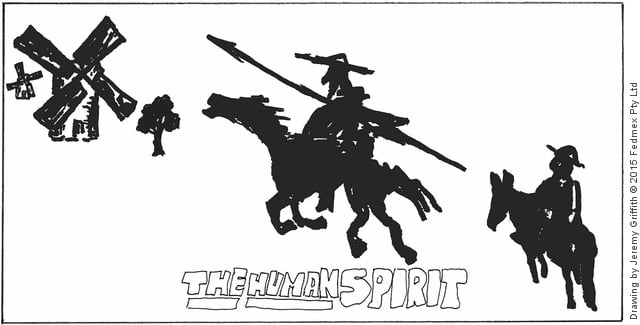
A picture by Jeremy Griffith showing Don Quixote ‘tilting at windmills’, a metaphor for the incredible
courage of countless generations of humans as they charged at the overwhelming problem of the
human condition in order that one day humanity would be able to explain our fundamental goodness.
Joe Darion’s lyrics of the song The Impossible Dream, which featured in the 1965 musical about Don Quixote, the Man of La Mancha, express the paradox of the situation in the line, we had ‘to be prepared to march into hell for a heavenly cause’. We had to lose ourselves to find ourselves. We had to suffer becoming upset in order to find knowledge, ultimately sufficient knowledge to explain and understand why we had to defy our instincts and suffer becoming upset. And, after some two million years (because that’s how long humans have been fully conscious), it’s that sufficient knowledge that’s finally been presented in FREEDOM.
Science has finally made it possible to redeem ourselves because it has finally made it possible to explain the difference between the gene-based learning system, which gives species orientations, and the nerve-based learning system, which makes it possible to understand the world.
We can now see that the Biblical story of Adam and Eve in the Garden of Eden accurately describes the primary situation involved in our human condition of the psychologically upsetting battle that emerged between our instincts and our conscious intellect’s search for knowledge. It says Adam and Eve/we took the ‘fruit’ (Genesis 3:3) ‘from the tree of knowledge’ (Gen. 2:9, 17) and were ‘disobedient’ (the term widely used in descriptions of Gen. 3). In other words, we developed a conscious mind and free will. But in that pre-scientific story it says Adam and Eve then became sinful and as a result were ‘banished…from the Garden of Eden’ (Gen. 3:23) of our species’ particular cooperative and loving, innocent instinctive state for having become ‘evil’ (Gen. 3:22), whereas this scientific presentation says, ‘No, no, that story got it wrong’. Adam and Eve/we are actually the heroes of the whole story of life on Earth. This is because the conscious mind is surely nature’s greatest invention, and to be given this task of searching for understanding when the whole world is condemning you—because all the other innocent storks and all of nature, the sun coming up, the rain, the clouds, the natural world is associated with our original instinctive self—was the most difficult of tasks imaginable. The whole world, in effect, ganged up on us, condemned our search for knowledge—but that condemnation was never justified. All the time, Adam Stork/we humans were good and not bad, but we couldn’t explain why.
Imagine the agony of the situation; for example, imagine living in a village where everyone had agreed not to plant weeds, and yet you had to plant thistles but couldn’t explain why. After just one day the people in your village are going to be putting dead cats in your letterbox and refusing to talk to you at the shops. The situation would be horrible after just one day of that condemnation and ostracism; well, imagine two million years of living on this planet unjustly condemned!
So not until science (which literally means ‘knowledge’, derived as it is from the Latin word scientia) found the key understanding that makes explanation of the human condition possible (which is that the gene-based learning system can only orientate a species while nerve-based learning system, the conscious mind, needs to understand the world) could we finally relieve ourselves of the agony of the human condition. And the ultimate knowledge we needed was understanding of the human condition, the explanation for why we’re good and not bad after all. Then, and only then, could this great burden of guilt be lifted off the shoulders of the human race and everyone finally relax and understand themselves and look into this dark corner of the human condition within themselves without recrimination.
This is a massive breakthrough—because it obviously wasn’t Adam Stork but us humans who became fully conscious and suffered this horrific split between our instinctive self or soul and our newer conscious self. And this story, you’ll see, gets even more complicated because our instinctive orientation wasn’t to some flight path, but to actually behaving in a cooperative, loving way.
As I said earlier, we humans have a moral conscience that wants us to behave selflessly. How we acquired an unconditionally selfless, altruistic moral conscience is one of the great mysteries of biology, but you’ll see it was another one of those explanations that we couldn’t access until we could explain the human condition. When you explain the human condition, suddenly all the ‘cave speak’, all the dishonest excuses we employed in the cave, such as that we have savage animal instincts, can be dispensed with and we can get out into the sun and live with the truth and move on from it into a human-condition-resolved new world.
So now we can explain how we humans acquired our unconditionally selfless, moral instincts. And, as I explain in chapter 5 of FREEDOM and in F. Essay 21, it was achieved through nurturing, a mother’s seeming unconditionally selfless love of her infant. Immediately you can see how this has been an unbearably confronting truth that we had to deny while we couldn’t explain why we had become so alienated and selfish and unable to be unconditionally loving. No child has been adequately nurtured while the horrific battle to find knowledge has been going on. And until we could explain that upsetting battle, we couldn’t admit the unbearable truth that nurturing is what made us human.
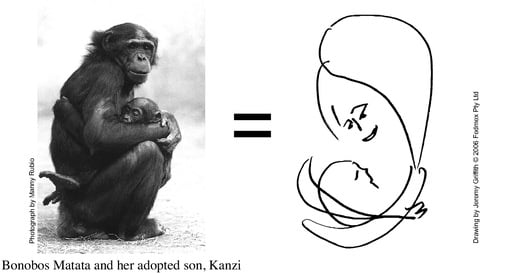
As is explained in F. Essay 21, bonobos closely resemble our human ancestors,
and evidence the role of nurturing in our development.
Yes, it is only now that we can explain why we became upset that all our defensive and evasive ways of coping can end. It’s only now that we can leave Plato’s cave of dishonest denial, come out from underground and live in the warm, healing sunshine of understanding.
So that is a brief explanation of our upset human condition—and when you think about it, it is really an obvious explanation, which as mentioned, is why other thinkers have also identified the main elements involved [see F. Essay 53]. We became conscious and were then at war with our instincts, with the result of this conflict being our psychosis. ‘Psych’ means soul from the Greek word psychē, and ‘osis’ means sickness or illness. The human mind became preoccupied with denial, so we became psychotic and neurotic, ‘neuron’ meaning nerves, ‘intellect-illness’.
This is the explanation of the psychologically upset state of the human condition. And it’s only through finding this explanation that the psychosis can be relieved, that the human race can finally be healed at the deepest fundamental level. Finding this explanation brings understanding to the dark side of ourselves.
So science is the liberator of humanity, the ‘messiah’ if you like—because science makes it possible at last to explain that we’re good and not bad after all. Science found the double helix (DNA), it found the understanding of how the gene-based learning system works, and the principles behind natural selection, and the understanding about nerves and how they can develop memory and that once you’ve got memory you can compare experiences and so on and you become conscious.
So it’s the ability now to explain the difference between the nerve-based and gene-based learning system or information processing systems that finally allows us to ameliorate or bring peace to our psychologically-troubled human condition—and by so doing, transform the human race from a human-condition-stricken state to a human-condition-free state. [You can read about how everyone’s lives can immediately be transformed in F. Essay 15.]
That is essentially what my book presents.
Part 7 The explanation of the sun symbol on the cover of FREEDOM
Jeremy: I might quickly explain this cover of my book FREEDOM: The End Of The Human Condition [shown below]. It’s got this great big sun here saying ‘freedom’ and so ‘Freedom!’ is the ultimate war cry for humanity when it finally breaks through into the clear and finds the relieving understanding of ourselves. And the sun has always been the image of knowledge, understanding. So the sun coming up has been the historical symbol of humans having finally broken through and relieved themselves of the human condition—and the one word you say when you do that is ‘freedom’. And to explain what you mean by that freedom you would say that the human condition has been brought to an end, you are free.
So [referring to the book’s title and subtitle], ‘FREEDOM: The End Of The Human Condition: At last, the redeeming, reconciling, and rehabilitating biological explanation of the human condition that brings about the dreamed of dawn of understanding [sun coming up] and ends all the suffering and conflict on Earth’—which is why there are these people on the cover depicted as jumping for joy.
The imagery of the sun representing freedom, finding knowledge, the dawn of understanding of ourselves, has been with us since time immemorial, and so I might just play some music about this. This is Jim Morrison from The Doors singing their 1968 song Waiting for the Sun. Listen to the words: ‘♫ At first flash of Eden / We race down to the sea / Standing there on ’s shore / Waiting for the sun / Waiting for the sun / Waiting for the sun / …Waiting for you to tell me what went wrong ♫’
Note the keywords: ‘…waiting…race down…’s shore…waiting for the sun [understanding]…to tell me [us] what went wrong [why did we become sufferers of the human condition]’.
You might wonder why Jim Morrison and his band members called themselves ‘The Doors’. The name comes from William Blake’s poem, The Marriage of Heaven and Hell, and you can see in that title that Blake was anticipating the time when heaven and hell, the good and the bad in us, would finally be reconciled. It recognises the time that has now arrived of the reconciliation of the polar opposites in our makeup. In his book The Marriage of Heaven and Hell, Blake wrote of a time ‘When the doors of perception are cleansed, man will see things as they truly are. For man has closed himself up, till he sees all things through narrow chinks of his cavern’ (1790). The ‘cavern’ is similar to Plato’s metaphorical cave in which we have had to hide. To return to the Adam Stork analogy, Blake is saying that one day, when we can reconcile this present upset state of anger, egocentricity and alienation with our species’ past innocent state (basically heal our divided condition, our split nature) we will no longer be preoccupied with denial and anger and egocentricity and suddenly we’ll be able to see the world as it really is. You see, every minute of every day we humans have been trying to get a win for our insecure ego—positioning ourselves to cope, trying to make ourselves successful and get some relief from the insecurity caused by not being able to understand why we’re good and not bad.
So, ‘When the doors of perception are cleansed, [when we can make sense of us] man WILL see things as they truly are’. That’s what happens when you find this understanding and you digest it; it’ll bring you back to life. I mean, that’s what that other song by The Doors, Break On Through [1966], was looking forward to: ‘♫ You know the day destroys the night / Night divides the day / Tried to run / Tried to hide / Break on through to the other side ♫’
A lot of truth is hidden in songs because for the most part we had to block out of our mind the truth about our species’ lost state of innocence. It was an unbearable truth but, nevertheless, there does exist within us this fabulous, exciting hope and dream that one day we would free ourselves from the human condition. We didn’t want to acknowledge the truth of the loving cooperative soulful world we once lived in, and of our anticipation of one day being able to return to it, because it would make having to live in our present massively upset, dark, soul-destroyed, cave-like world unbearable. But, nevertheless, every now and again that deeper truth of our journey from upset to freedom bubbled up to the surface in songs and in poetry. Rhyme and rhythm have been marvellous vehicles for allowing this bubbling up to occur—to let out some truth that otherwise we wouldn’t be able to express.
So, through the words of songs and poetry we let a lot of truth slip through our guard. So what has Jim Morrison said here: ‘You know the day destroys the night’? The ‘night’ is obviously living in this cave of dark denial, unable to confront the issue of the human condition. So the ‘day’ is the sun, the truth. The lyrics ‘Night divides the day’ is similar to Plato’s cave allegory, the night—the darkness—stops us looking into the day; it stops us confronting the sun.
Jim Morrison says, ‘Tried to run, Tried to hide’. We were evasive, we were trying to get a win out of all sorts of adventures and escapisms and we tried to hide from the truth by denying it. And we dreamed of this day when we could ‘Break on through to the other side’. But the other side of what? Of this dark, horrible state we’ve had to live in. Someone once asked me what I thought of Jim Morrison because he seemed to have virtually suicided which was such a tragedy, he just self-destroyed with drugs. But that’s the thing about Jim Morrison—he was such an heroic person. He, in effect, decided, ‘Look, I don’t want to live in this bloody cave. If I can’t get out in the sun, if I can’t ‘break on through to the other side’, I don’t want to be a part of this ugliness and madness anymore.’ So he just sort of self-destroyed with drugs and so forth. He was incredibly honest. (Of course, humans also had to have the courage and fortitude to bear our ever increasingly corrupt state in order to persevere with the all-important search for knowledge.)
So yes, you can see in the lyrics of Break On Through the whole story of the human condition. There are a lot of other songs that I might quickly mention that show you how much truth can come through in songs.
Consider Bono’s words from the 1987 U2 song Where The Streets Have No Name: ‘I want to tear down the walls that hold us inside [so that’s the cave again], I want to reach out and touch the flame [the truth which has been horribly confronting], where the streets have no name [I want to go to this place where there’s no longer any egocentricity where the streets don’t have any name]. I want to feel the sunlight on my face [there is the sun again], see the dust cloud disappear without a trace [I want to see the end of the human condition].’
And from U2’s 1988 song Love Rescue Me, ‘Love [truth] rescue me’. Love is truth ultimately. The ultimate form of love is compassion, is truth about ourselves; so ‘Love [truth] rescue me…raise me up...my own hands imprison me [my own actions have led to me being a horribly angry, egocentric and alienated human]…And the sun in the sky, makes a shadow of you and I [it exposes us]…I’m here without a name [I’m alienated], in the palace of my shame’. And then Bono has a funny little thing he adds at the end where he dreams of when we’re free of the human condition and he says, ‘I’ve conquered my past [found understanding of the human condition], the future is here at last, I stand at the entrance to a new world I can see. The ruins to the right of me, will soon have lost sight of me. Love rescue me.’ He’s basically pleading for the truth to turn up on this Godforsaken planet and save us from ourselves. Because if you think about the Adam Stork story, the price of searching for knowledge is becoming angry, egocentric and alienated. So the longer that search goes on without Adam finding that knowledge, the more angry, egocentric and alienated he becomes until he becomes fearfully, horrifically angry, egocentric and alienated. And that’s where the human race is right now. In fact, we are living on the threshold of terminal alienation, self-destruction. [Read more about the endgame situation humanity has arrived at in F. Essay 55.] So yes, we need ‘Love [truth to] rescue me [us].’
The 1967 rock musical Hair contained a song that pleaded to ‘Let the sunshine in’, as well as the song Aquarius that similarly anticipates the time of ‘Harmony and understanding, sympathy and trust abounding. No more falsehoods or derisions [all the dishonesty from the sort of bullshit we talk about and all the excuses we used inside the cave, because we couldn’t face the truth, are no longer necessary], golden living dreams of visions, mystic crystal revelation and the mind’s true liberation [how more clear a description of our freedom from the human condition can you get than that]. Aquarius!…As our hearts go beating through the night, we dance unto the dawn of day [there’s the sun again], to be the bearers of the water, our light will lead the way’. So those people at the bottom of the cover of FREEDOM dancing until the dawn of day? Well, that’s now arrived.
The words of Walter Earl Brown’s 1968 song If I Can Dream, which was performed by Elvis Presley, said, ‘There must be peace and understanding sometime, strong winds of promise that will blow away all the doubt and fear. If I can dream of a warmer sun [there’s the sun again] where hope keeps shining on everyone…We’re trapped in a world that’s troubled with pain…Still I am sure that the answer’s gonna come somehow, out there in the dark, there’s a beckoning candle.’ I might mention that when writing this song, Brown said he was commissioned to write a song for Elvis and that the lyrics for it just wouldn’t come to him, but then in the middle of the night he had this epiphany and suddenly connected to all this material and it just came pouring out—in words that are such a truthful description of this time when finally we break through into the clear.
Cat Stevens (or Yusuf Islam as he’s now called) wrote the 1971 song Peace Train, which contained the lyrics ‘I’ve been smiling lately, dreaming about the world as one. And I believe it could be, some day it’s going to come. For out on the edge of darkness there rides a peace train [that’s almost the same as what Walter Earl Brown said, ‘out there in the dark, there’s a beckoning candle’]…[to] take me home again…everyone jump upon the peace train…come and join the living’—end this cave existence and take us home, because (as I explained in chapter 5 of my book FREEDOM and in F. Essay 21) before we became sufferers of the human condition, became conscious, we were living in this cooperative, loving state. So there is this dream to take us home again.
And in Changes IV [1971], Cat Stevens sang, ‘Don’t you feel a change is coming from another side of time, breaking down the walls of silence [all the dishonesty], lifting shadows from your mind [making sense of everything at last]…Yesterday has past, now let’s all start the living for the one that’s going to last [because this reconciling understanding puts an end to ‘upset’ forever. Because that’s what it is when Adam Stork becomes angry, egocentric, and alienated—‘upset’. We used to call it being ‘corrupted’ or ‘evil’, but that has negative connotations. It is a state of psychological upset, but it’s not a bad state, remember—it’s a massively heroic state. Adam and Eve Stork are the heroes of the story of life on Earth. That’s how wonderful we really are]…the day is coming that will stay and remain when your children see the answers…when the clouds have all gone…and the beauty of all things is uncovered again [similar to William Blake’s and The Doors’ desire to ‘see things as they truly are’]…Don’t you feel the day is coming…when the people of the world can all live in one room, when we shake off the ancient chains of our tomb’. That’s the cave analogy again.
Consider also the Nobel Laureate Bob Dylan and his 1963 song When The Ship Comes In: ‘The hour that the ship comes in [what ship? The ship of understanding]…and the morning will be a-breaking [there’s the sun]…and the words that are used to get the ship confused [that means all the false, dishonest excuses we have used] will no longer be understood as the spoken [will not be understood as being the truth]…For the chains [holding the truth back] of the sea will have busted in the night…And like Goliath, they’ll be conquered’. All the dishonesty will be conquered by this understanding that obsoletes the need to live in all this dishonest denial.
And Bob Dylan’s 1964 song The Times They Are A-Changin’: ‘As the present now will later be past…For the times they are a-changin’.’ And from Creedence Clearwater Revival, John Fogerty’s 1970 song Who’ll Stop The Rain: ‘Long as I remember, the rain’s been coming down. Clouds of mystery pouring confusion on the ground. Good men through the ages trying to find the sun [there’s the sun again, namely understanding]. And I wonder, still I wonder who’ll stop the rain.’ [See F. Essay 45 for many more prophetic songs anticipating the arrival of liberating understanding of the human condition.]
There is this great hunger in the human heart that one day we would find this reconciling understanding. So that’s what I’m saying this book presents—the completion of that 2-million-year search for dignifying, relieving, psychologically healing, understanding of us. Understanding of why we’re good and not bad after all.
Part 8 The arrival of future shock
Jeremy: The composer Andrew Lloyd Webber wrote a requiem inspired, he said, by the story of a Cambodian boy who had been forced by the soldiers of Pol Pot to kill his sister. But how could such horror inspire such beautiful music? Surely it’s because there is this greater truth that stands above all the horror and suffering on this planet—which is that despite our capacity for evil, humans are still sublimely beautiful beings. Despite our capacity for evil, we are still good. So that’s how Lloyd Webber could write a requiem inspired by that horror. Because we lived in hope, faith and trust that, as Professor Harry Prosen says in his Introduction to FREEDOM, one day, probably from some secluded corner of the world, these answers might emerge. They’re not going to come out of the ivory towers of academia because, as Harry says, academia was built inside the cave. It’s all run by these scientists who are humans suffering from the human condition. So they’re all living in mortal fear of the subject of human condition. And as a result of that fear, they’ve invented all these dishonest ‘cave’ excuses for why we are the way we are. In chapter 2 of FREEDOM [and in Video/F. Essay 14 & F. Essay 40; see also Part 1 of Transform Your Life And Save The World] I go through and dismantle all the dishonest biological excuses and explain and reveal the hidden agenda—which is to try to find a way to deny the human condition; to not have to face it. We’ve built this castle of lies inside this cave and this book finally demolishes it.
This is the time that Alvin Toffler was anticipating when, in his seminal 1970 book Future Shock, he wrote of ‘the shattering stress and disorientation that we induce in individuals by subjecting them to too much change in too short a time’ (p.4 of 505). Yes, this is the ultimate future shock. We have been living in the dark cave of denial and suddenly the lights, as it were, have been turned on. When the blinds are drawn on our human situation, all manner of previously unconfrontable and thus denied truths are suddenly revealed, so this breakthrough brings with it a massive amount of exposure. FREEDOM is a veritable litany of heresies, such as that God can be demystified as the physical law of Negative Entropy [see F. Essay 23]; that human-condition-avoiding mechanistic science is leading humanity to terminal alienation [see F. Essay 40]; that the left-wing in politics is extremely dangerously dishonest and artificial [see F. Essay 35, which is the definitive presentation of what is wrong with pseudo idealism, and is such a significant essay it has also been produced as the standalone booklet titled Death by Dogma: The biological reason why the Left is leading us to extinction, and the solution, which is freely available on our homepage as one of the WTM’s six key books]; that there’s been a difference in the roles between men and women in our species’ horrific journey to enlightenment [see F. Essays 26 & 27]; that there are differences in alienation between races [see F. Essay 28]; and so on. These insights are potentially extremely controversial, even incendiary. But that is what happens when you draw the blinds on the human condition—all the dishonesty that we’ve been practising and perfecting and mastering is exposed. Inside Plato’s metaphorical cave we’ve built this immaculately structured castle of lies that everyone has been party to, and since any bit of light/truth that crept in was immediately blocked out it had become almost impossible for anyone to break through all that denial and expose the lies—and look truthfully, and therefore effectively, into the human condition and find the human-race-liberating true explanation of it.
So it’s been a beautifully structured castle that everyone’s comfortable living within. But one day that all had to be demolished. So this is truth day, honesty day, exposure day; in fact, what we have historically referred to as ‘Judgment Day’, although ‘Judgment Day’ is not a time of condemnation but of relieving understanding. Nevertheless, it’s a massive shock that these understandings unavoidably bring. [For much more on this subject read F. Essay 40 and The Shock Of Change that understanding the human condition brings.]
This is the biggest paradigm shift the human race has ever had to face. It’s a massive shock because it all happens so suddenly. One day we’re living in the cave of denial, we’re confidently but deludedly parading around in there thinking there’s no other world, and suddenly it’s all exposed as a dark, totally superficial and artificial false world and a whole new world sun-drenched with understanding, sensitivity and beauty is introduced.
And then there is the problem that people assume when they’re reading a book that they will be familiar with the paradigm it is describing. If you use the analogy of a motor car, if someone invents a new spark plug and they write a book about it, people reading that can figure out pretty quickly what is being talked about because they are familiar with the basic design of cars. But this is wheeling in a whole new machine that we’ve never seen before, so you start reading this book and, as Harry Prosen says in his Introduction [see F. Essay 19], you go deeper and deeper into shock because it’s about a whole new world, and one that you’ve been resigned to living in denial of. Basically, as a resigned human you can’t believe that you’re ever going to read a book that actually gets in behind what the human condition really is and deals with and makes sense of it all.
So you start reading and you think, ‘Oh yeah, this might have a nice little angle on this or that subject’, but the possibility that someone’s actually got in behind the human condition and from there explained and exposed everything is almost beyond our wildest expectations and dreams. But that’s actually what’s happened, and thank goodness it has, and in the nick of time, because, as I said, the human race is heading ‘flat chat’ [full speed] towards terminal alienation [again, read more about the endgame situation humanity has arrived at in F. Essay 55]. All these floods of refugees and the suffering in the world is astronomical. And the only thing that could end it and transform the human race from a human-condition-stricken state to a human-condition-free state is this deeper understanding of why we are the way we are. Only that can bring this relieving understanding to ourselves, finally bring healing peace to the human condition.
So at this point, I think we might take questions. I’m sorry if that’s been a bit long. But I had to get my tools up, as it were, I have to try and get the framework of what this is all about in place so that I can most effectively address the questions.
Neil: I’ve got two text questions which are quite similar. I might present them both to you and then we’ve got someone who I might switch to webcam for.
Part 9 Q&A: Are we entering end play for the human race?
Jeremy: Okay. I’ll just read the questions. This is a text question from Kim: ‘I’m worried about my kids growing up in the world today. Is there really any hope for a better world?’ And this is another question which is very similar, ‘Do you think the world is coming to an end?’
Okay, is it end play? Well I’ve just explained that we are entering end play. So to answer that I’ll go over what I have just explained but specifically to address this question; how serious is our plight?
[Jeremy refers to the Adam Stork picture] The fundamentals are that we became fully conscious and we set out in search of knowledge and became angry, egocentric and alienated: ‘I want to prove I’m good, not bad’, ‘I won my football game’ or whatever. Obviously, the only thing that can relieve this schism is to find the understanding that allows us to make peace with our instinctive self, explain that we are good and not bad. So it makes sense that the longer this search for knowledge went on, the more polarised the situation was going to get. So in the end Adam Stork is going to get extremely angry, egocentric and alienated and that’s what I’m suggesting has occurred. While suffering from the human condition, deep inside ourselves we always intuitively knew that we had to find this understanding and until we did we were in dire straits. As the journalist Richard Neville wrote, ‘the world is hurtling to catastrophe: from nuclear horrors, a wrecked eco-system, 20 million dead each year from malnutrition, 600 million chronically hungry…All these crises are man made, their causes are psychological. The cures must come from this same source; which means the planet needs psychological maturity fast. We are locked in a race between self destruction and self discovery’ (Good Weekend, The Sydney Morning Herald, 14 Oct. 1986; see www.wtmsources.com/167).
So this guy, Adam Stork, is insecure about his worth. That’s what adolescence means: the search for our identity, for who we are and in particular, why we are not ideally behaved. He’s psychologically immature. When he finds understanding, he’s no longer insecure about his goodness, his fundamental worth. So suddenly he matures from insecure adolescence to secure adulthood. So Neville is saying we need ‘psychological maturity’. We need to find the understanding that ends this adolescent state of insecurity. Neville continues with, ‘We are locked in a race between self destruction and self discovery’. Yes, self discovery means finding understanding of the human condition. The longer we go on without finding this explanation, the more dangerous the situation becomes because eventually Adam Stork becomes chronically angry, egocentric and alienated. That’s what I’m suggesting has happened.
The following two graphs, from chapter 8:11C in FREEDOM, evidence this. They chart the psychological journey that humanity has been on, with the top graph charting the development over time of mental cleverness, as indicated by brain volume, and the bottom graph charting the development of cooperativeness or integration. You can see on the bottom graph that it has gone into a vertical dive, marking a rapid increase in upset where we now face the prospect of terminal levels of alienation and social dis-integration.
If you read the headings for the different parts of chapter 8:16 of FREEDOM, which covers the last 200 years of humanity’s journey, you can see what’s going to be described there—this horrific and terminal end play situation: Chapter 8:16A: The last 200 years during which pseudo idealism has taken humanity to the brink of terminal alienation; 8:16B: The emergence of terminal levels of alienation in the ‘developed’ world; 8:16F: The emergence of ‘materialism envy’ and with it unbridled greed, extreme dysfunction and destitution in the ‘developing’ world; 8:16H: The progression of ever-more dishonest and dangerous forms of pseudo idealism to cope with the unbearable levels of upset; and it ends with 8:16Q: The ‘abomination that causes desolation’ ‘sign…of the end of the age’ that is ‘cut short’ by the arrival of the liberating truth about the human condition.
You’ve got to understand that until Adam Stork could defend himself he couldn’t afford to admit how serious his plight was. He had to keep a brave face and always be positive. Remember the adolescent that was resigning and was frustrated with adults smiling all day and making jokes and talking about superficial things like, ‘your lovely new blue shoes’. We coped by being positive, we had to because we couldn’t deal with the negative. But that positivity masks this true state of the horror of the human situation and the more horrific it gets, the more we put on a brave face to hide it. But what’s buried underneath is the true horror of the human situation and that’s now bursting out everywhere, we’re coming unzipped at the seams. Some of the descriptions in FREEDOM of this end play state are just horrendous! This is an article quoted in chapter 8:11B of FREEDOM titled ‘The Sexodus’ about ‘a large-scale exit from mainstream society by males’. So this is the schism between men and women which, without a reconciling understanding, could only get more polarised because again, as I have explained in FREEDOM, women are more representative of the anima, or female part of ourselves, more empathetic with the original sensitive, cooperative, loving soulful side of ourselves while men took up the horrific task of championing the ego, searching for knowledge and became extremely angry, egocentric and alienated. So there’s a very big schism between these two positions but suddenly we’re able to realise that it was men who took on this job of championing the ego, finding knowledge and paid the price of becoming incredibly corrupted. So in the end women couldn’t bear them anymore because they were just too corrupted. It says here in the article, ‘…Never before in history have relations between the sexes been so fraught with anxiety, animosity and misunderstanding…One professional researcher…puts it spicily: “…the message from the chicks is: ‘It’s not just preferable that you should fuck off, but imperative. You must pay for everything and make everything work; but you yourself and your preferences and needs can fuck off and die’.”…The media now allows radical feminists to frame all debates…Women can basically say anything about men, no matter how denigrating, to a mix of cheers and jeers…modern feminists…[are] parading around in t-shirts that read: “I BATHE IN MEN’S TEARS.”…’ (Milo Yiannopoulos, Breitbart.com, 4 Dec. 2014; see www.wtmsources.com/146).
So there’s been no reconciling understanding. As this amazing quote says, ‘One of the reasons that men have been so quiet for the past two decades, as the feminist movement has blossomed, is that we do not have the vocabulary or the concept to defend ourselves as men. We do not know how to define the virtues of being male, but virtues there are’ (Asa Baber, Playboy, Jul. 1983). But let’s just look at this; so if men basically took up the role of championing the ego, trying to find understanding and the price they paid was to become even more angry, egocentric, and alienated, it makes sense, since that was their horrible task, that they couldn’t explain themselves—they are sitting there and they can’t explain themselves! How horrific is that situation going to be? The criticism of their corrupted condition got louder and louder and still they couldn’t defend themselves so in the end the sexes were just splitting apart where women can’t but conclude that men are evil and the destroyers of the planet. But it turns out that men are the heroes of the story of life on Earth! We never understood that but now we can. So finally men can explain themselves, they can unzip their lip, they can finally tell the world about themselves. They can finally explain why they’re so upset. That will finally be the real means to heal the war between the sexes.
So yes, it’s end play wherever we look. (See more explanation on the endgame state humanity has arrived at in F. Essay 55.)
Neil: We could go to another text question or we could cut to a person on webcam? Whatever you would prefer.
Jeremy: Okay, well I’ll just take this one as it might have some relationship to what I’ve just explained. So this is Kenda.
Part 10 Q&A: How was this understanding found from outside the ‘cave’?
Jeremy: Okay. ‘Wow, I’m loving the webinar. So if most human constructs are inside the cave and cannot produce the truth (refer to your comment about academia) what is outside the cave that can produce the truth?’ That is a good question. Righto!
This is a very important little diagram illustrating the difference between human-condition-avoiding, whole-view-evading, so-called reductionist or mechanistic science and human-condition-confronting, unevasive science. So the question is, how does someone get outside of the cave to produce the truth? It’s true, you can’t find the answers from inside the cave. Someone has to get outside the cave and it’s only from there, from that denial-free position, that they can dare to look into the human condition. Bono, the prophetic singer/songwriter from the band U2 came to Australia and was interviewed by Australian television presenter Andrew Denton and he said; ‘You do get the feeling in Australia that there’s…something going on down here, a new society being dreamt up…[that in Australia there is] the opportunity to lead the world…to actually just take some moral high ground’, to which Denton joked, ‘You say this to every country you visit’ and Bono shook his head and said, ‘The only other country I think has the chance in leadership in terms of creating a new model as Australia would be Canada’ (Enough Rope, ABC-TV, episode 97, 13 Mar. 2006). And the thing about Australia and Canada is that they’re relatively isolated, or they have been until recent times. In his Introduction to FREEDOM Professor Prosen says that these answers aren’t going to come from the ivory towers of academia, they’re going to come from deep left field, somewhere that’s relatively sheltered, where some deep, truthful introspection and thought might take place, and that’s what happened. I’m a biologist but I started thinking about the human condition because I could see this horror situation that no one seemed to be addressing, so much so that I created an organisation to specifically investigate the human condition and promote inquiry into it which is now called the World Transformation Movement. And I kept finding that I could make sense of it but I was in a dilemma because I was thinking about these issues from a holistic point of view and they’re making sense to me but the world seemed to be denying them, so I was in a wrestling match trying to figure out whether I’m saying the truth or not. Then I read some books from some very rare people who confirmed that what I was thinking was right, especially the great philosopher Sir Laurens van der Post who wrote books about the bushmen of the Kalahari and said that they were a relatively innocent ‘race’ compared to the Caucasian ‘race’ which is more developed down this exhaustion curve [referring to the chart above]. And that resonated with me because I was reading all these textbooks that were using the ‘red in tooth and claw’ (as Lord Alfred Tennyson put it) excuse that we have savage animal instincts that make us compete for food, territory and a mate that I referred to at the beginning of the webinar, which is just rubbish. We have cooperative, loving instincts and it’s a psychological dilemma not a genetic-opportunism-based dilemma that we suffer from. (See F. Essay 2: Debunking the ‘savage instincts’ excuse for human behaviour.)
As a young man I didn’t relate to the things I was being taught so more and more I went off on my own and I kept backing myself and I kept making sense of things. I can look back now and realise that all I was doing was living outside the cave and not participating in all the denial.
In 1988 I was interviewed on Caroline Jones’s radio program, The Search for Meaning. The interview attracted, according to Jones, the second most enthusiastic public response in the program’s twice-weekly, eight year history, second only to a nun from South America. I listened to it the other day not having listened to it in about 20 years and it’s very interesting because I was still very shy or naïve. I said in the interview that I had walked out of Gone with the Wind at the cinema because I was so upset when I saw that Scarlett O’Hara was someone who used other people, so that’s how idealistic and sheltered I was. I just couldn’t accept it, it was wrong. Humans shouldn’t treat each other like that and it reminded me of when I came out of Tasmania after looking for the Tasmanian Tiger, which only perpetuated my shelteredness and innocence. I came back to Sydney and a girlfriend at the time took me to a big party with a lot of Sydney celebrities. It was in a huge dining hall and I remember being so distressed by all the artificiality that I stood on my chair and yelled out, ‘You’re all frauds, you’re all fakes!’ and everyone went silent, it was amazing. The girl I was with put her arm around me and said ‘Jeremy, the world’s not perfect but we all do our best and sit down’! But that’s how out of kilter I was with reality. I didn’t understand the world, it wasn’t right. I was holding onto the truthful paradigm and the world was totally addicted to a false one. I had this amazing ‘shit detector’ in my head and I found I could think about things truthfully so I just kept thinking and kept making sense—actually, I knocked out all these great breakthrough answers by the time I was about 32 but ever since I’ve been trying to find a way to communicate them because when you get outside that cave, people inside the cave don’t want to know about it, they’re terrified of the truth even though you say ‘No, No, look, this truth defends humans, it explains us and it’s compassionate and healing so you don’t have to be afraid of it.’ As soon as I start talking about the human condition or any aspect of it, everybody cringes and runs a mile. I did another introductory video (the 2014 Focus Group Video) about this using fear of snakes as the analogy; for everyone who’s got a snake phobia you write a book about snakes—but they open the cover and they see a snake and immediately shut it and say, ‘I’m not going to read that!’
To quote from a summary of Plato’s cave allegory from the Encarta Encyclopaedia: ‘Breaking free, one of the individuals escapes from the cave into the light of day. With the aid of the sun [living free of denial of our human condition], that person sees for the first time the real world and returns to the cave with the message that the only things they have seen heretofore are shadows and appearances and that the real world awaits them if they are willing to struggle free of their bonds. The shadowy environment of the cave symbolizes for Plato the physical world of [false] appearances. Escape into the sun-filled setting outside the cave symbolizes the transition to the real world…which is the proper object of knowledge’ (written by Prof. Robert M. Baird, ‘Plato’; see www.wtmsources.com/101). For the description of what would happen when the ‘mess[enger]’ tries to ‘free’ the cave prisoners ‘into the sun-filled setting outside the cave’, Plato wrote that when ‘he [the cave prisoner] were made to look directly at the light of the fire [again the fire corresponds to the power of the sun which makes visible the imperfections of human life], it would hurt his eyes and he would turn back and take refuge in the things which he could see, which he would think really far clearer than the things being shown him [the mechanistic scientific establishment would prefer its human-condition-avoiding, dishonest theories]. And if he [the cave prisoner] were forcibly dragged up the steep and rocky ascent [out of the cave] and not let go till he had been dragged out into the sunlight, the process would be a painful one, to which he would much object, and when he emerged into the light his eyes would be so overwhelmed by the brightness of it that he wouldn’t be able to see a single one of the things he was now told were real. Certainly not at first. Because he would need to grow accustomed to the light before he could see things in the world outside the cave [initially the cave prisoners would find it impossible reading about and absorbing the truthful descriptions of the human condition; they would suffer from a ‘deaf effect’]’ (The Republic, 515-516). Plato went on to say that ‘they would say that his [the person who tries to deliver understanding of our human condition] visit to the upper world had ruined his sight [they would treat him as if he was mad], and that the ascent [out of the cave] was not worth even attempting. And if anyone tried to release them and lead them up, they would kill him if they could lay hands on him’ (517). That’s how distressed they would be if someone tried to make them confront the truth about themselves, even though as I said, this is the defending truth, this is the truth that liberates us and ends all the horror.
As psychiatrist Harry Prosen says in his aforementioned Introduction to FREEDOM, ‘denials do fight back with a vengeance when faced with annihilation’. So there is massive resistance to this. ‘All great truths begin as blasphemies’ as the famous playwright George Bernard Shaw said (Annajanska, 1919), but no great truth begins with as big a blasphemy as this one. This is the blasphemy of blasphemies! So I’ve been to hell and back trying to cope with the condemnation and ridicule, it’s just a horror story. That I’m still on the feet, able to even give this presentation, is a minor miracle. But anyway, that’s how I got outside the cave and that’s how I was able to dig into this forbidden subject. But again, I stress that science is the real liberator of humanity. It found the mechanisms that make explanation of the human condition possible. There’s always a few innocents about in the world but they’ve got a job to do at the end of the day. Science has to, first of all, do its job.
So here [referring to the mechanistic versus holistic science diagram above] is a description of the whole plan that the human race came up with to try to end the suffering on the planet. Scientists are all sufferers of the human condition, as they’re all humans, and therefore they can’t look at the human condition so they’re inside the cave developing all this cave ‘bullshit’. They’re mechanistic or reductionist, they focus on finding understanding of the mechanisms of the workings of our world: ‘Reductionism is the philosophical belief that all human activities can be “reduced” to – i.e., explained by – the [non-psychosis involved] behavioural responses of lower animals...’ to quote Arthur Koestler (Janus: A Summing Up, 1978, p.19 of 354). They avoid the overarching whole truth of the human condition and just say, ‘Our job is to go in and focus on the details and collect all these bits of the jigsaw, but we’re not in the position to put the jigsaw together.’ So, that’s [reading from the diagram] ‘human-condition-avoiding, evasive, mechanistic, non-introspective, not-thinking-dependent, supposedly objective, DEDUCTIVE SCIENCE’. They don’t want to think and confront themselves and it’s not really objective because they’re avoiding the human condition at every step. So they are part of ‘the competitive, aggressive and selfish state of REALITY for the upset human-condition-afflicted human race’. But as this very insightful question from Kenda asks, ‘How does someone get outside the cave?’ Deductive science did the hard work of finding all the pieces of the jigsaw but they can’t assemble that jigsaw because they’re mechanistic, they’re reducing. They don’t want to look at the human condition but someone has to. So ‘human-condition-confronting, unevasive, holistic, introspective, thinking-dependent, subjective, INDUCTIVE SCIENCE’, which is what I’ve been conducting, has to come along and put the pieces of the jigsaw together and explain the human condition.
It’s like a game of gridiron football where they have a specialist kicker who takes no part in the game. The rest of the team does all the hard work, they’re all in a mess, they’re flogged and covered in scars, they’ve battle their way down within kicking distance of the goal post and they bring on this specialist kicker and he, in his unsoiled attire, kicks the winning goal. But clearly the win belongs to the whole team that got him there so yes, innocence has a minor concluding role to play in this human journey, it’s got to come along at the end of the whole thing and put the bits of the jigsaw together. As I said earlier, science means ‘knowledge’, derived as it is from the Latin word scientia and ultimately the search for understanding of the human condition had to be conducted mechanistically.
I’ll take you a little bit further down into this situation. If you think about this, there’s a really serious problem that can emerge, in fact has emerged, and that is that this mechanistic approach—where you avoid the human condition and just find the mechanistic details, you’re entirely deductive and not inductive—can ultimately become so entrenched that humanity/science becomes so practiced at this avoidance that it doesn’t want to have anything to do with the holistic truth and even denies and attacks it. So someone uses the clues that humanity/science has found to produce the full truth about the human condition—which is what science has ultimately been dedicated to finding—but humanity/science doesn’t want to accept it, or even look at it, because humanity/science has become completely human-condition-avoiding. That’s the final dilemma.
And that’s why these answers have taken so long to gain support because the human race is just so mechanistic. Science is so mechanistic, so committed to avoiding it, totally terrified, so used to living in Plato’s cave. I only have to start talking about the human condition and people’s brains start to switch off because they know where I’m going. The human mind is so astute to this problem of the human condition, it’s allergic to it. The deaf effect starts kicking in and I’m there pleading—praying—‘just bear with me, this is going to turn out well, you are going to come out a hero in this, but you have to listen. I’ve got to get through this and explain it then you’ll be safe, then you don’t have to live in the cave anymore, you can come out into the sun!’ But to start with they are massively sceptical that anybody could explain the human condition. But I can’t be rattling on about the human condition minute after minute, hour after hour if I hadn’t got outside it. But again, humans are so sceptical, and so fearful of the subject of the human condition that it’s incredibly hard to get these ideas out there and get a foothold of interested support for them. Especially from the mechanistic scientific establishment because it’s entirely deductive and not inductive. And so this is the dilemma we’re in.
Does that answer that question?
Neil: I think that’s a great answer.
Part 11 Q&A: Is 1 Corinthians 15:51-54 fulfilled by this explanation?
Jeremy: Hi-ya Jonathan!
Jonathan: Hello, hello, hello.
Jeremy: You’re from Canada, are you?
Jonathan: I’m from Saskatchewan, Canada yes.
Jeremy: Anyway, I don’t know what time it is over there.
Jonathan: It’s just 7:30pm, so we’ve still got lots of sun. This is a wonderful webinar, really glad to be here.
Jeremy: Oh, we’re lucky to have you. Okay so, they did send me through your question so I had a bit of time to think about it.
Jonathan: Okay.
Jeremy: But do you want to just explain what it is?
Jonathan: Okay, so just say my question?
Jeremy: Yes.
Jonathan: Okay so, for someone like me, before I became an agnostic of sorts years ago, just loaded down with too many questions before I found you guys, I grew up in quite a religious background and I think a very positive one. And so when I found you guys I had a million questions about the scriptures, about the Bible particularly because I was so immersed in it.
But just to make this really simple, just to get right to the point. I thought of a verse that I think might sum this up really well and I’m wondering if you can comment on it. Because it’s amazing to me reading the words of St Paul in Corinthians in this passage. And I’ve often wondered about it and so I thought it would be appropriate to ask you directly, specifically thinking of the transformation of humans as you talk about. I guess the question directly would be, would you say that 1 Corinthians 15:51-54 is actually fulfilled in this explanation of the human condition? When St Paul writes this, is he metaphorically describing or metaphysically or religiously or however, whatever words you would use, is he actually anticipating 2000 years ago what you’ve just discovered right now?
Jeremy: Yes okay. ‘Listen, I tell you a mystery: We will not all sleep, but we will all be changed—in a flash, in the twinkling of an eye, at the last trumpet. For the trumpet will sound, the dead will be raised imperishable, and we will be changed. For the perishable must clothe itself with the imperishable, and the mortal with immortality. When the perishable has been clothed with the imperishable, and the mortal with immortality, then the saying that is written will come true: “Death has been swallowed up in victory.”’ (Bible, 1 Cor 15:51-54) Yeah well, you can’t improve on that.
If you read through FREEDOM, there’s a lot of quotes from what I call denial-free thinkers or prophets. Denial-free thinkers were people outside the cave that could see so much more clearly than people in this confused state of denial, living inside the cave. The Bible is the most extraordinary collection of denial-free thinkers who came from the Israelite nation throughout the centuries. I mean, they didn’t collect their best tennis players or gridiron players. They only collected their truth-sayers and it’s just the most amazing collection. And people do know when someone’s telling the truth because it’s resonating, they keep hitting the nail on the head, they keep going into this dark, forbidden corner and making sense of life. The Bible is full of truth, it’s just saturated with it, we can go through the Bible now and explain anything in it using this understanding. (See F. Essay 39 for an explanation of prophets.)
Okay so let’s look at this, St Paul is saying ‘Listen I’ll tell you a mystery: [so he’s going to tell us something really special] We will not all sleep, but we will all be changed— [so there’s a huge change coming] in a flash, in the twinkling of an eye, at the last trumpet.’ So he’s intimating there that these answers are going to suddenly appear and that’s what happens. We’re living in this cave of denial and then one day, somebody goes up and sits under a Banyan tree and does some deeper thinking and makes sense of it all. Suddenly the blinds are drawn and it’s all over in a flash. Well, metaphorically speaking, it’s over because it will take a few generations to break through the deaf-effect problem. I put these ideas forward in 1988 and I’ve been putting them forward in different versions and trying to get a better and better presentation so that the ideas are more accessible ever since, but it’s still struggling to get a foothold of interest and support out there because this frontier is so terrifying, even though it’s going to be so relieving. So in effect, that’s what happens—we’re in a room and it’s so dark you can’t see a damn thing and then someone turns the light switch on and the room is flooded with light and suddenly you could see everything. It’s that dramatic. When you immerse yourself in this we’re able to draw the blinds left, right, and centre.
Now St Paul says here, ‘For the trumpet will sound, [so the trumpet is heralding this breakthrough in understanding] the dead will be raised imperishable, and we will be changed.’ If we read what R.D. Laing wrote about our level of alienation from the truth, which is in par. 123 of FREEDOM, ‘Our alienation goes to the roots. The realization of this is the essential springboard for any serious reflection on any aspect of present inter-human life…We are born into a world where alienation awaits us. We are potentially men, but are in an alienated state [p.12 of 156] …the ordinary person is a shrivelled, desiccated fragment of what a person can be. As adults, we have forgotten most of our childhood, not only its contents but its flavour; as men of the world, we hardly know of the existence of the inner world [p.22] …The condition of alienation, of being asleep, of being unconscious, of being out of one’s mind, is the condition of the normal man [p.24] …between us and It [our true selves or soul] there is a veil which is more like fifty feet of solid concrete. Deus absconditus. Or we have absconded [p.118] …The outer divorced from any illumination from the inner is in a state of darkness [So we’re in the back in the cave, you see]. We are in an age of darkness. The state of outer darkness is a state of sin—i.e. alienation or estrangement from the inner light [p.116] …We are all murderers and prostitutes…We are bemused and crazed creatures, strangers to our true selves, to one another’ [pp.11-12] (The Politics of Experience and The Bird of Paradise, 1967). ‘We are dead, but think we are alive. We are asleep, but think we are awake. We are dreaming, but take our dreams to be reality. We are the halt, lame, blind, deaf, the sick. But we are doubly unconscious. We are so ill that we no longer feel ill, as in many terminal illnesses. We are mad, but have no insight [into the fact of our madness]’ (Self and Others, 1961, p.38 of 192). ‘We are so out of touch with this realm [where the issue of the human condition lies] that many people can now argue seriously that it does not exist’ (The Politics of Experience and The Bird of Paradise, p.105). So R.D. Laing is saying we’re as ‘dead’ as doornails. We are living in the cave of denial.
I’ve always had this lovely memory from when I was a child of all these lovely plants and the sun and the silvereyes, which are little Australian birds that make a little twitter noise that’s so pretty. And the blue wrens who travel around in what’s called a lek, a little tribe of these lovely birds and they’re all friends to each other. I don’t know whether my cot had been set amongst it all but it’s so strong in me. But once your brain is preoccupied with trying to get a win out of life, trying to get some relief from the insecurity of the human condition or troubled by trying to face the horror of your condition, it’s just so overwhelming that you really have no room left to savour anything, to feel what’s there. You just can’t access anything.
If I fill this glass with water and I flick a tiny bit of water out, that little meniscus on the surface represents how much sensitivity we’ve really got left after two million years of unjust condemnation. But the rest of the glass of water represents how much sensitivity we once had and will now have again. So we will come back to life. We’ve been totally preoccupied with this horrendous situation, putting on a brave face, always trying to be positive and always trying to help each other and uplift each other while at the same time being indifferent to other’s suffering—it’s a total mind-game that we’ve been preoccupied with. We have not been able to see nature. It’s only in moments of extreme despair or distress that suddenly everything becomes radiant and we see the world as it really is. There’s a wonderful passage in Olive Schreiner’s book The Story of an African Farm where she talks about how despair can lead to the abandonment of the facades of life and, when that happens, how all the beauty—and truth—of life is suddenly accessible and the ‘yellow-legged bees as they hum make a dreamy lyric; and the light on the brown stone wall is a great work of art; and the glitter through the leaves makes the pulses beat’ (p. 298 of 300).
William Blake famously prophesised in his poem, The Marriage of Heaven and Hell—a title that obviously refers to the time when the good and evil state of the human condition is reconciled—that ‘When the doors of perception are cleansed, man will see things as they truly are. For man has closed himself up, till he sees all things through narrow chinks of his cavern’ (1790).
So yes, we have been effectively ‘dead’ but, ‘the dead will be raised imperishable’. Once the human condition is understood and digested and all this amelioration takes place, we will leave this state of preoccupation with the horror of the human condition and we will see the world as it really is. We will come to life and be able to actually feel each other. Professor Prosen, a fellow Canadian, has become a great friend of mine and his great lifelong study has been in empathy. Harry has incredible empathy, an ability to feel deeply for others which is why he’s such a wonderful psychiatrist. He’s famous now for healing traumatised bonobos and I could tell you stories all day about Harry’s brilliance with animals. For example, Harry was asked to help in a situation at a zoo where an elephant had died, leaving both its elephant companion and human keeper catatonic with grief. Harry intuitively moved the catatonic keeper in front of the catatonic elephant, which prompted the elephant to put its trunk on the shoulder of the keeper, and that sharing of feeling, of empathy, of compassion, between the two freed them both from their catatonic states. Harry’s work on empathy allows him to access all these sensitivities and that’s so rare amongst humans. But all humans will have this ability to feel what others feel and reach them in their situation and their suffering. The help and relief that will bring to everyone, to finally feel understood, will be very precious.
Part 12 Q&A: Professor Harry Prosen comments
Jeremy: Okay, Harry?
Harry: I’m from Saskatchewan too by the way.
Jonathan: Oh, right on!
Harry: This is a marvellous webinar. I have been doing psychotherapy for 55 years and one of the things that I’ve said is that your theories, Jeremy, encompass all approaches to psychotherapy. And I’m struck today too by something additional, which I haven’t said, which is the tremendous ambivalence and arguments between the biological and psychological sciences, not only in my speciality of psychiatry but in most of science and you’re reconciling the two. You’re providing a fundamental way of not throwing one out or saying this isn’t worth anything. And empathy, yes, that’s been my life’s study and you’re empathic to many truth and the people listening recognise that, thank you.
Jeremy: Thanks, Harry. Well, that’s an example of Harry’s empathy. If you bore down into that Harry is saying that what I’m doing is not alienating mechanistic science for example, or women, or whatever it might be. I’m empathically relating to their situations and bringing reconciliation to all sides.
So Harry’s picking up on the underlying importance of what’s going on which is what he does all the time. He’s such a good friend of mine and I speak to him nearly every week and this is why, because he’s just so lovely and this has been such a lonely journey and Harry is so precious. You can see he’s tuning in to what’s really going on here as a psychiatrist. He’s saying, ‘What Jeremy is doing here again and again is he’s bringing all parties in from the cold, everyone who’s stranded out in the wilderness.’ And that’s really what this is all about—empathy.
Part 13 Q&A: The role of religion in the human journey
Jeremy: Sorry, Jonathan, to get back to your question. St Paul says, ‘the dead will be raised imperishable’. But now we won’t perish in the sense that we used to. We do not die anymore. We age, and we’ll eventually die, but we won’t live in this ‘dead’ state as St Paul talks about or the ‘alienated state’ that R.D. Laing talked about. Because that ends. So it is ‘imperishable’, in that sense we will have immortality.
We were mortal because we were suffering so badly from the human condition, we were dying in soul during our lifetime, from childhood, even earlier in the womb. So life was very brief under the duress of the human condition and we are so heroic to have endured it. The more you get outside the human condition and look back into it, the more on your knees in appreciation you are for the courage and beauty of humans and what they’re enduring. You might know this, Jonathan, but the more you get to understand this, the more the world becomes transparent and the more empathetic you become. For instance, you’re now going back through your childhood and looking at all this dogma, which it was in those days, that you grew up with and trying now to make sense of it. And religions have been the custodian of truth, and the Bible especially, so now we can make sense of all this. So ‘at the last trumpet’ when we find understanding of the human condition, suddenly we’ll no longer suffer from the horror of the cave existence, we’ll be, in effect, immortal.
I’ll never forget Sir Laurens van der Post telling me about the bushmen of the Kalahari and how, during a drought, when the older men and women were unable to keep up with the rest of the group they would be left behind. It was a great act of selflessness because obviously if they tried to stay with them the whole little clan would perish. So they would put a little thornbush around them so that they wouldn’t be attacked by hyenas and they would selflessly stay behind. Everybody understood this was the right thing to do. It didn’t matter to the old people that they were being left behind because the more innocent you are, the closer you are to our loving, cooperative soul, the purer you are in a sense, the less it matters whether you live or die. People wanting to have children when there are already so many children in the world who are unloved, and people wanting to live forever is an expression of the insecurity of the human condition. It’s become a way of validating themselves.
So when humans are free of the human condition and just saturated with love and with access to the true beauty of the world, they will ‘live’ forever. It will be magic and they’ll have so much empathy with everything around them and they’ll feel everything and having to die won’t be an issue because a fear of dying is based on a selfish, self-preoccupied existence.
Jonathan: It’s like there’s no death then, kind of. In the end then there’s no death really.
Jeremy: No psychological death.
Jonathan: And in a sense too, they’re so alive that even if they die they never do die in a sense. They’re always alive because they’re not insecure and so death is not even a thing, it’s just a transition. Is that part of it?
Jeremy: Yeah. ‘Transition’ I get a bit nervous about because it’s suggesting an afterlife and I always think that…
Jonathan: Yes.
Jeremy: …afterlife or reincarnation is another expression of our insecurity. It made us feel better about metaphorically dying during our life. If we could live for an afterlife at least we got some win out of the situation.
Jonathan: I remember in A Species in Denial you said, in truth no one dies. I think it was in that book? (See A Species In Denial, ‘The Demystification of Religion—Afterlife explained’.)
Jeremy: Yes. In truth we don’t die. In the sense that our spirit is eternal and our love is eternal and because we become like God, if God is integrativeness and universal and omnipotent and eternal. Once we’re part of the integrative process, fully, and sharing in it, then yes, our love is forever and it’s so profound. So we do live forever. (See F. Essay 23 on the integrative meaning of existence.)
Jonathan: Right.
Jeremy: We are real for the first time. We are in the image of God then, we are like God, knowing. We are cooperative, integrative, totally empathetic, as one with that whole. As the human condition subsides now we do all start to come back to life. But that’s dependent on getting these answers out there, because there is massive resistance to this information. As Plato said, ‘And if anyone tried to release them and lead them up, they would kill him if they could lay hands on him’ (The Republic, 517).
Neil has sent me through another question you’ve asked Jonathan, something about a thousand years?
Jonathan: Yeah, I’m just blown away. When I had studied the Book of Revelation years ago, I learned that the phrase ‘thousand’ in the Bible often just means a long time. It’s such a huge claim and it staggers me but you’re basically saying that when John the Apostle was imprisoned on Patmos and he wrote the Book of Revelation, he was anticipating that 2,000 years in the future someone like you was going to find the truth. In theology it was called ‘redemptive history’ [‘Redemptive history is that series of events by which God redeems his people from sin, a narrative fulfilled in Christ. It is the principal subject-matter of Scripture. Redemptive history constitutes the “mighty acts of God” that he performs for the sake of his people, those acts by which people come to know that he is the Lord (Ex. 7:5, 14:18)’ (John Frame, www.monergism.com/topics/redemptive-history)] and what you’re saying is so amazing to me and here I am, you know! I’ve been in isolation realising that what you’ve discovered is the fulfilment of 6,000 years of theological redemptive history and everyone who has been teaching me these things and even though they’ve been teaching from a literalist perspective which, as you’ve explained, they’ve had to do without the explanation of the human condition, it’s nevertheless true, that this is the ‘new heaven and a new earth’ (Rev. 21:1) and like wow, what a shock. But that is what you’re saying, correct?
Jeremy: Yes, but again, we’ve got to keep this in perspective.
Jonathan: Yeah.
Jeremy: We go back to this image of inductive and deductive science [included above, ‘The search for the key, unlocking insight into our human condition’]. Science has got to do its job of finding the understandings that make the reconciling explanation possible. Particularly understanding the difference in the gene and nerve-based learning systems. Then and only then can some bloody innocent who’s wandering around on the periphery, come along and put the bits together, right?
Jonathan: Right.
Jeremy: In the gridiron football analogy, these guys [pointing to deductive science in the above diagram] do all the hard work and get really knocked around before the specialist kicker, a cleanskin, comes on and kicks the winning goal. But the win belongs to science which is on the shoulders of the whole human race. This explanation says our upset state—anger, egocentricity and alienation—is the heroic state, is the good state. If I’ve been sheltered from that upset state, by implication I’m the least heroic person there is in that sense. But there’s always been a few unresigned people who have been sufficiently sheltered in their upbringing to not have to resign and they could think truthfully. But they can’t do anything until science gets to this point of understanding the mechanisms of the workings of our world. So you need an innocent like myself to come along and put the bits together then, right?
So that’s what’s happened. It’s just a process that was set up. There’s one last step in the process which we’re really struggling with which I explained, because these guys [pointing to deductive science in the above diagram] are so habituated to living in the cave. I’m telling them to get out of the cave, it’s all over and they won’t move. So we’ve got to get some movement. Professor Prosen and a few others like him are starting to discover the profundity of this and then we might get some real movement and then we can get out of the cave but at present, they’re all resisting.
So when the ‘thousand years’ are over, ‘Another book [will be]…opened which is the book of life [the human-condition-explaining and thus humanity-liberating book]…[and] a new heaven and a new earth [will appear where]…There will be no more death or mourning or crying or pain’ (Rev. 20:12, 21:1, 4). Yeah, okay. I had a look at the Book of Revelation, obviously I’ve read it before but I noticed for example it talks about the ‘first resurrection’ (Rev 20:5,6). You’re wanting to make sense of what the ‘thousand years’ means it seems to me from what you’ve said. You’re asking, ‘Are you suggesting that this explanation of the human condition that you’ve found represents the fulfilment of the blessed hope of Christianity and religion in general?’ Yeah, well it’s a bit too ‘me’ focused for my liking but this thing has happened—we have reached this point of understanding the human condition on the back of science’s hard won efforts. It took a lot of discipline to invent science. There were all these people running around and no one’s getting to the bottom of things and someone must have said ‘Look, we’ve just got to stop this madness, someone’s got to start accumulating knowledge—counting the number of frog’s eggs, building up a data sheet—building up these little bits of mechanistic knowledge of the details of the workings of the world. There’s a lot of discipline in that and it took time for civilisation to emerge to the point where we could settle down and focus on collecting that knowledge, to make liberation possible. So, okay, Johnny-come-lately kicks the winning goal but so what? It’s a team effort, the whole human race achieved this breakthrough, right?
If we go back to the Adam Stork situation, we want to start to see what happens when this really gets out of hand, which is explained from par. 919 of FREEDOM. So this bloke [pointing to Adam Stork] is searching for knowledge, or these people I should say—women were participating in an equally important way. Everyone’s equal in this great heroic battle, we’re differently upset, we had different roles to play but we’re all equally good, no humans are bad—this upset human gets more and more upset, so in the last 11,000 years when religion emerged humanity had gotten extremely, terrifyingly upset.
At a certain point Adam Stork becomes so upset that he can’t trust himself any longer because everything he says is saturated with ego, massively full of bullshit denial. He’s massively angry even though he’s civilised and tries to hide it. He’s one upset dude. Now he’s walking around hating himself. Just like St Paul when he was Saul before his conversion to Christianity, when he was hating the Christians and he was heading to Damascus to persecute them. He’s hating this truth-saying man, Jesus Christ and he’s hating himself for being so hateful. But then he has an epiphany on the road and thinks, ‘What would happen if I flip the coin and actually start supporting and living through Christ? I mean, if he’s so honest that he’s driving me crazy with anger, what he’s saying must be very truthful and therefore worthy of my support. Wow. What if I decide to live by supporting him rather than backing myself all the time, I’ll be a force for good when presently I’m a force for evil.’ The relief that realisation would have brought to him would have been tremendous, and so the Bible says, metaphorically, he was struck by lightning, fell off his donkey and went blind for three days. Basically, he had this realisation: I can live in support of Christ and save the world. St Paul was one of the main architects of the spread of Christianity as a way to live, to save yourself.
So when humans became overly upset, we needed to create religion as a way of relieving ourselves of our guilt by living through something greater than the ourselves. I mean we could give ourselves to a fence post but that’s not going to do much good! So we want to live through someone wholesome. If you could find someone like Christ, who was amazingly sound, and live by His words then you’re a force for good again. So religions were invented and they were fabulous. Those great prophets of Christianity, Hinduism, Islam, Buddhism and the other great religions saved the human race, because they bought us time by putting a hand break on our upset. We could live through them instead of living out our upset and turning ourselves into monsters.
Jonathan: Calm people down.
Jeremy: Oh yeah.
Jonathan: Calm all of history down, so that it could make science possible. Is that right?
Jeremy: That’s right. It civilised the world. It brought us back from the brink. So it was a fabulous introduction. What’s happened since though is that humans have gotten so upset, because there’s still no fundamental understanding, that the emphasis on admitting your guilt and admitting to the integrative process of God by deferring to Christ is all massively, unbearably condemning.
Jonathan: Yeah.
Jeremy: So at a certain point, religion becomes too condemning, there’s too much guilt. In fact, as I say in par. 1070 of FREEDOM, in recent years the resentment and anger towards God for ‘condemning people’ (What the Bleep do We Know!?, 2004) and for being a ‘stupid’, ‘utterly evil, capricious and monstrous’ ‘maniac’ ‘who creates a world which is so full of injustice and pain’ (comedian Stephen Fry, The Meaning of Life, RTÉ TV, 1 Feb. 2015), and towards religion for being ‘the church of perpetual misery’ (from a 2005 animated TV cartoon), has grown so much that secularism is on the rise everywhere. And as I’ve quoted Mary McCarthy as saying in par. 1063 of FREEDOM, ‘Only people who are very good can afford to become religious; with all the others it makes them worse’ (Memories of a Catholic Girlhood, 1957; Lloyd Reinhardt’s rendition, The Sydney Morning Herald, 18 Jan. 1995; see www.wtmsources.com/175).
Jonathan: Great.
Jeremy: So religion is now losing favour flat-chat because people can’t bear the idea of guilt anymore. So it says here [Jeremy is reading from the Book of Revelation in the Bible], the ‘first resurrection’, that was obviously Christ because you could be resurrected from your corrupted self if you lived through Christ. Christ was sound enough to reconcile the human condition—if you brought science/knowledge to Christ, he’d put it together in a flash because he’s so sound, he’s such a great prophet. (Again, see F. Essay 39 for an explanation of prophets, including Christ.)
Jonathan: Great.
Jeremy: Plato was a great prophet also and he talked about the human condition and even admitted we’re living in a cave of denial. So Christ was just the first unevasive thinker on record. I’m just flicking through the Book of Revelation and I’ve underlined bits of it—Christ is called ‘the Lamb’(Rev. 5) and ‘the firstborn from the dead’ (Rev. 1:5). Well, R.D. Laing said we’re all dead, so Christ is an unresigned innocent, he’s not psychologically dead, he’s alive. So that’s absolutely right.
Jonathan: Right, right.
Jeremy: He was ‘the firstborn from the dead’. Here comes an innocent that’s no longer part of the cave of denial. ‘I am the Living One’ (Rev. 1:18). See, he says ‘living’: ‘I’m still alive inside’. I’ve always thought that John the Apostle, who wrote the Book of Revelation is what I call ‘shattered defence’—somebody who’s so extremely upset that their mental guards, their defences that block out the truth have become disorganised and through this ‘shattered defence’ their soul can emerge and suddenly they become vehicles for the truth which bubbles through in them. So you can get some prophets who are actually ‘shattered defence’. They become mystics and channellers.
Jonathan: Psychics, yeah.
Jeremy: Yeah, really good. I think John the Apostle really immersed himself in this, allowed himself to go deep into the whole issue of the human condition. Of course, such ‘shattered defence’ access of the soul’s true world was not the natural, secure, balanced access that unresigned people have. For those people, whom we have historically referred to as prophets, the soul’s world has always been an ultra-natural place, not something apparently mystical or supernatural. But it was spooky for those with a shattered defence because when the truth does get up, when the ‘last trumpet’ is blown and there is ‘Revelation’, obviously they personally have a lot of pain to be revealed. So they’ve got a deep anxiety about ‘Judgment Day’ and John the Apostle is allowing himself to be immersed in that. The Book of Revelation is a big rave about how spooky ‘Judgment Day’ is for him: ‘Holy Dooley, one day we’ve got to get the truth up and it’s going to blast us out of the water and that’s going to be scary, especially for people like me.’ It’s not going to be of course. It’s going to be a day of compassionate understanding, not judgment. (Again, see F. Essay 40 for the explanation of ‘Judgment Day’.)
You can see it when John the Apostle says things like, ‘the hour of trial that is going to come on the whole world’ (Rev. 3:10) and ‘You say, “I am rich; I have acquired wealth and do not need a thing.” But you do not realize that you are wretched, pitiful, poor, blind and naked’ (Rev. 3:17). So here’s a rich person saying ‘Look, I’ve got everything. I’ve got two Mercedes in the garage, I’m heading out on the town, it’s all happening for me. There’s nothing wrong with me.’ And John the Apostle is saying, ‘No mate, you’re dead as a doornail!’ If a rich person read what R.D. Laing wrote they’d be saying, ‘Oh, I didn’t know any of that applied to me.’ ‘From the throne came flashes of lightning, rumblings and peals of thunder’ (Rev. 4:5), which is a metaphor for the truth arriving. It’s going to be shattering when it comes. Ultimately it’s going to be healing but it’s initially pretty exposing, that’s for sure.
Then he says, ‘Then I saw the lamb…He went and took the scroll from the right hand of him who sat on the throne.’ (Rev. 5:6,7). Then in Revelation 6 he talks about the ‘Four Horsemen of the Apocalypse’—famine, death, pestilence and war—which is an anticipation that these last 200 years are going to get right out of hand and there’s going to be massive famine, death, pestilence and war. I mean, open the newspaper and you can hardly read it because it’s so terrible. There’s pictures of boat loads of people drowning trying to reach safety from countries that are out of control and the war in Syria. It’s nightmares everywhere you look. Imagine what innocent children are feeling when they look at all that horror. ‘Therefore, they are before the throne of God and serve him day and night in his temple; and he who sits on the throne will shelter them with his presence. Never again will they hunger; never again will they thirst. The sun will not beat down on them, nor any scorching heat. For the Lamb at the center of the throne will be their shepherd; he will lead them to springs of living water. And God will wipe away every tear from their eyes.’ (Rev. 7:15-17). Because if you give yourself to Christ and defer to him, you can’t go far wrong. And if you do it sincerely enough, fully enough, you will be ‘born again’ from your effectively dead state. Through him, you can live again because he’s sound and if you live through him and look after him and preserve his vision, you’re a force for good.
So he’s got Christ in the mix here. He is the ‘first resurrection’. You can live through him and his vision but he can’t liberate you from the human condition because he can’t explain the human condition.
And then John the Apostle talks about the ‘thousand years’ (Rev. 20:2). Well, as you said, that means a significant amount of time is going to take place between Christ and when we finally get the answers. We have to create science for a start and we’re going to get pretty nervous towards the end because the world is so messed up. How is there going to be any innocence left to lead us home?
There’s a marvellous essay that I’ve included in par. 1265 of FREEDOM written by Nobel Laureate Albert Camus in 1940 titled The Almond Trees. In it Camus says, ‘When I lived in Algiers, I would wait patiently all winter because I knew that in the course of one night, one cold, pure February night, the almond trees of the Vallée des Consuls would be covered with white flowers. I was then filled with delight as I saw this fragile snow stand up to all the rain and resist the wind from the sea. Yet every year it lasted, just long enough to prepare the fruit. This is not a symbol. We shall not win our happiness with symbols. We shall need something more weighty. All I mean is that sometimes, when life weighs too heavily in this Europe still overflowing with its misery, I turn towards those shining lands where so much strength is still untouched. I know them too well not to realize that they are the chosen lands where courage and contemplation can live in harmony. The contemplation of their example then teaches me that if we would save the mind we must pass over its power to groan and exalt its strength and wonder. This world is poisoned by its misery, and seems to wallow in it. It has utterly surrendered to that evil which Nietzsche called the spirit of heaviness. Let us not contribute to it. It is vain to weep over the mind, it is enough to labour for it. But where are the conquering virtues of the mind? This same Nietzsche listed them as the mortal enemies of the spirit of heaviness. For him they are the strength of character, taste, the “world”, classical happiness, severe pride, the cold frugality of the wise. These virtues, more than ever, are necessary today, and each can choose the one that suits him best. Before the vastness of the undertaking, let no one in any case forget strength of character. I do not mean the one accompanied on electoral platforms by frowns and threats. But the one that, through the virtue of its whiteness and its sap, stands up to all the winds from the sea. It is that which, in the winter for the world, will prepare the fruit’ (Summer, 1954, pp.33-35 of 87).
So Camus is saying that there are places in the corners of the world where there is still enough innocence left to ‘prepare the fruit’, that is, find understanding of the human condition, not by ‘one accompanied on electoral platforms by frowns and threats. But the one that, through the virtue of its whiteness and its sap, stands up to all the winds from the sea [all the bullshit dishonest denial].’ So the ‘first resurrection’ is when we can live through supporting Christ. But we still haven’t freed ourselves from the human condition. The ‘second resurrection’, which they said was a thousand years but turned out to be 2,000, is when science has done its job and found the mechanistic details which finally makes it possible for someone whose innocent and has been hanging around the edges to come in and synthesise the explanation from science’s hard-won insights.
In Revelations 18, John the Apostle has a big rave about the horrors of the great city of Babylon, city of power: ‘“Woe! Woe to you, great city, you mighty city of Babylon! In one hour your doom has come!”…They will say, “The fruit you longed for is gone from you. All your luxury and splendor have vanished, never to be recovered.’ The merchants who sold these things and gained their wealth from her will stand far off, terrified at her torment. They will weep and mourn and cry out: “Woe! Woe to you, great city, dressed in fine linen, purple and scarlet, and glittering with gold, precious stones and pearls! In one hour such great wealth has been brought to ruin!”’ (Rev 18:10,14,17) In par. 1265 of FREEDOM I explain that Christ looked forward to the time when understanding of the human condition would be found and alienating cities could gradually be dismantled, saying, ‘Do you see all these great buildings?…Not one stone here will be left on another; everyone will be thrown down’ (Bible, Matt. 24:2; Mark 13:2; Luke 19:44, 21:6). Because cities represent the most extreme congestion of people, and their development, along with their nature-eliminated, un-natural environment, which is so destructive of our innocent instinctive soul, greatly compounded the spread and increase of upset. Of course, once humans became alienated, cities provided a refuge from the criticising innocence of the natural world—they were not created as functional centres where people could more efficiently work together, as often claimed, but as hide-outs for alienation.
This marvellous cartoon, which appears in par. 232 of FREEDOM, shows a big highway into a giant metropolis with vehicles streaming into it. There’s a sign saying, ‘Truth and Beauty Left Lane’ and there’s a little person riding on their bicycle off to the left. To quote from FREEDOM:
In it we see a lone, self-powered, self-sufficient individual leaving the great artificial and superficial, alienated and alienating metropolis that has been built on dishonest denial to seek ‘truth’ in the dark night of all that we have repressed, and, by so doing, resurrect ‘beauty’ on Earth. Yes, as Sir Laurens van der Post wrote, ‘There is, somewhere beyond it all, an undiscovered country to be pioneered and explored, and only a few lonely and mature spirits take it seriously and are trying to walk it’ (About Blady, 1991, p.87 of 255)’
So, we built this giant city inside the cave to live in but it’s not very wholesome. As Cat Stevens sang and titled one of his famous songs, ‘Where do the children play?’ How is our soul supposed to live in such an alienated world? All the grass is covered in highways and concrete so there’s no soul left. Nature must be just trembling with what we’ve done to this planet.
Jonathan: It’s almost like these cities, these alienation centres, have a time limit. Because I know the city of Jerusalem, where Jesus was saying those words, was destroyed within his generation as he said it would be. So it’s almost like a cycle, is that right?
Jeremy: Well, whilst ever we were still having to live with the human condition, we really needed cities.
Jonathan: Yeah, yeah.
Jeremy: This is the passage that explains what happens ‘at the last trumpet’, when we’ve found understanding of the human condition. ‘Then I saw “a new heaven and a new earth,” for the first heaven and the first earth had passed away, and there was no longer any sea. I saw the Holy City, the new Jerusalem, coming down out of heaven from God, prepared as a bride beautifully dressed for her husband. And I heard a loud voice from the throne saying, “Look! God’s dwelling place is now among the people, and he will dwell with them. They will be his people, and God himself will be with them and be their God. He will wipe every tear from their eyes. There will be no more death or mourning or crying or pain, for the old order of things has passed away.”’ (Rev 21:1-6 ) It couldn’t be expressed more beautifully.
So if you wanted me to paint a picture of the ‘new Jerusalem’ it would be something like the dwellings the bushmen of the Kalahari live in, something really empathetic with nature.
Jonathan: Yeah.
Jeremy: Something sensitive and not full of ego and extravagant embellishment. Imagine if all the car makers in the world were to sit down together to design one extremely simple, embellishment-free, functional car that was made from the most environmentally-sustainable materials, how cheap to buy and humanity-and-Earth-considerate that vehicle would be. We could spend all our spare time helping those less fortunate and suffering in the world. But of course, while we needed artificial reinforcement through winning power, fame, fortune and glory to relieve ourselves of our insecurity, we needed all those extravagant cars but the ‘new Jerusalem’, when it comes to the world, will be natural, clean, simple and wholesome, like the hippies were trying to do in the 60s.
If you read into what John the Apostle is saying: ‘They will be his people, and God himself will be with them and be their God.’ God is integrative meaning so humans will be integrative, sensitive and loving and ‘He will wipe every tear from their eyes.’ That means everyone’s eyes—the good and the bad—because everyone’s reconciled. This understanding brings everyone in from the cold. No one’s bad any longer. Everyone’s variously upset but they’re all good.
Remember [above in Part 8: The arrival of future shock] I used the analogy of composer Andrew Lloyd Webber’s requiem being inspired by the story of a Cambodian boy who had been forced by the soldiers of Pol Pot to kill his sister? You can’t envisage a more horrific situation and yet it inspired a requiem. There is a truth, even above the horror that says that all humans are fundamentally good. We can now understand that as being actually true. And that’s so healing, redeeming and dignifying.
Jonathan: So they shouldn’t have been kicked out of Eden to begin with?
Jeremy: That’s right.
Jonathan: It was a mistake, it was a mistake, all along it was a mistake, yeah.
Jeremy: Sort of, we can go back and say, ‘Listen Huey, you shouldn’t have chucked us out in the first place.’
Jonathan: Yeah.
Jeremy: And if you want to personify the whole damn thing, God says, ‘Well, you became conscious which is the ultimate invention by nature of the integrative process so there’s nothing we could have done about it. Consciousness has to go through this process of struggling to validate itself.’ So that was the unavoidable journey we had to go on. And yes, it was a mistake but it wasn’t really a mistake. I mean, if you read chapter 4 of FREEDOM, ‘The Meaning of Life’, it actually describes the whole journey of the development of order of matter from an honest, not a dishonest, basis and you can see all the stalling points along the way, the impasses that we had to overcome. Nature first had to develop the single-celled organism which led to multicellular organisms, then to the Specie Individual and each gateway had to be got through. The story of natural selection is the story of death and suffering—it’s a horrific damn story. Anyway, it produced us in the end so you could say that’s not fair either but natural selection is a whole lot of different experiments put out there and a few of them are selected, the rest are booted out. I mean that’s not very nice!
I wrote the following lovely passage that I’m really proud of in par. 840 of FREEDOM about how the bushmen or more innocent people, the equivalent of Adventurous Adolescentman, would cope with lions and crocodiles and the horror of all that because they’re so brutal. But you see, they’re sufficiently innocent still to be able to be empathetic, they realise there is a greater truth, that nature isn’t perfect, that it’s on a journey to somewhere or other. Nature is trying to develop order and it’s imperfect. It hasn’t developed the fully integrative state yet and so they’d be tolerant:
‘I should explain that having said that unconditionally selfless love is everywhere and that nature, such as oak trees, are full of loving life, we, of course, have always been aware that there is conflict in nature, that animals especially fight with and kill each other, but we considered that this occurs because living things sometimes, in effect, lose sight of love. In fact, we were aware that many animals struggle to be loving and can only manage it for periods, and so we forgave them for that—‘there’s my unfortunate friend Mr Crocodile, dressed in armour, anticipating, even provoking battle, and with a massive extended mouth full of ferocious teeth, lying there in the swamp ready to tear to pieces any creature that comes close’. Love is everywhere even though some creatures struggle to, in effect, appreciate it. [This truth that we once knew was explained in chapter 4 when the integrative limitation of the gene-based natural selection process that produced the competition and aggression we see in nature was described.] In more innocent times, we were magnanimous towards the sometimes divisive behaviour that occurs in nature, such as in our animal friends, because we could feel and see the greater truth that love is universal; that it is the one fabulously wonderful, great force in the world. Again, this was before the upset state of the human condition became so developed that our shame killed off this awareness, at which point we invented all manner of false truths or ‘gods’, such as gods for war, and for sexual love, and for imperfections that we no longer had the generosity of spirit to cope with—such as gods for lack of rain, and for violent weather.’
So they were loving and they could look at suffering, they could look at death, they could look at horrors like that with compassion.
Jonathan: They could see the block, almost, in the mind of the animal that natural selection imposed on them, forcing them to compete. It’s like they could see that.
Jeremy: Yeah, sort of. That’s attributing too much awareness but there was nevertheless a deeper intuition in animals. Honestly, when we get totally sensitive and can access all the beauty of nature again, we’ll be astonished by how aware animals are. Even plants that don’t have a nervous system. Just how much they know the whole process that they’re part of in their whole being. So in a sense, Adventurous Adolescentman wouldn’t have known of this genetic block in other animals to achieving consciousness and from there becoming fully integrative?? but they did in another sense and they would have intuitively realised who they were and their limitations and this whole integrative journey and that they had to do their bit and live out their lives the best they could and there was a sort of acceptance somewhere in their bones of bones. Not a conscious acceptance but a knowing that nature is ferocious, everyone’s trying to kill each other and rise up the pecking order and it’s absolutely awful in one sense. But once you can get to this overview that it’s all part of this heroic journey and this wonderful process that emerged on Earth when a replicating molecule can develop life, and then so on and so on in all of these stages of development to greater order, it’s a magnificent story.
The following beautiful passage from van der Post’s 1953 book The Face Beside the Fire talks about this great procession of life. Van der Post was able to articulate this macro overview that I’m talking about and could see it all with so much compassion and love and it’s very beautiful: ‘I was allowed to attend a victory parade, as it were, of all the life that has ever been. I saw all that has ever been come streaming through the long lanes and corridors of my blood, through their arch of admiralty, round the inner-square and then straight down past my own white lighted Hall. Out of the darkness that preceded Genesis and flood, it began with a glimmer and a worm of the unformed earth in love with the light to come. Yes! a worm with a lantern, a glow-worm with phosphorescent uniform, marched proudly at the head, and behind came great streams of being protozoic and pre-historic. Nothing was excluded and everything included, their small fires of being clearly lit, tended and well beloved. This, it was said, is the true, the noble heroic and unique crusade of the love of life. For look, among them not a brain but only matter tentatively and awkwardly assembled. Yet remark on their bearing and the trust with which they hurl themselves into the uncomprehended battle. Ah! tears of love and gratitude burned in my eyes at so urgently moving and life confiding a sight. To feel, at last, the burden that they carry for me in my own blood, to know at every second several of these reflected in white corpuscle and scarlet cell are dying unflinchingly in battle for my all, to know that giant lizard and lion as well as unicorn came after, and were hurled too into similar struggle and defence of the totality of all. I was allowed, too, to see the first man and registered the seismographic thrill of the marching column at the appearance of so skilled and complex a champion. I was allowed to speak to him and I touched his skin riddled with snake bite, his shoulder pierced by mastodon’s spike, his skull deep-scarred with sabre-tooth’s claw. And as reverently and tenderly I took his hand shaking with marshy malarial fever, I was moved to pity him by the evidence of such dread and unending war. But he would have none of it. He looked me fearless in the eye and in a voice that boomed like a drum in his stomach said: “Brother, it was worth it. Whatever they tell you, add this, it was worth it.”
I spoke to a Bushman half-eaten by a lion in the Kalahari, his only vessel a brittle ostrich egg with red and black triangles painted neatly on it, now broken and sand scattered. He looked in my grey eyes with the brown eyes of a people at dusk, slanted to bridge a chasm behind the face of a dying member of a dying and vanishing race. He too, my dying nomad brother, said: “Add, add quick before I go, ‘it was worth it’.” I spoke to an aborigine in the bight of the great gulf Tattooed with dung he said: “I vanish, but it was worth it.” In New Guinea, I met a stone-age Papuan, his black skin sheened with green after centuries in the jungle between basin and fall of water and spurting volcano, and he too said: “Doubt it not, it was worth it.” Everyone said, “Lovely gift of a life that we blindly trust burns with such loving fire in the dark that at any price, no matter how great, it is worth it.”
Yes, they all agreed and utterly convinced me, so that I can never doubt again. I wept when the great procession came to an end, for one and all, great and small—I loved them all. Yes, even to the worm that brought up the rear, with shaded night light and a nurse’s white, in its dress concealing a phial of the drug of the greater sleep made with a touch of the hand of God’s great, good night. Yes…I love them all; I believe them; I am ready for battle; and to continue at their head the journey of them all to the end of the road in my blood. At last, purified and complete, I am ready to awaken and defend my love’ (pp.292–294 of 312).
Jonathan: That’s wonderful. I really appreciate you addressing these things because I’ve struggled. I found you guys many years ago and it’s been quite a struggle. I myself, maybe I’m like John the Apostle in being a ‘shattered defence’ and it’s been really, really difficult dealing with all these things but it’s wonderful to be here with you now and to speak with you guys and to hear you talk about that. Carl Jung said a good quote, he said that ‘We must read the Bible or we shall not understand psychology. Our psychology, whole lives, our language and imagery are built upon the Bible.’ (Visions: Notes of the Seminar Given in 1930-1934, Vol. 1, p156) And, like you say, it’s an immense shock to me, all these things I’ve taken literally for so many years and then all of a sudden it’s laid out. It’s still an amazing story but what a shock at the same time. And so I really appreciate you taking the time to articulate those things, I really appreciate that.
Jeremy: Well, we appreciate having you here and hearing what you’ve got to say, it’s very precious from our point of view, from everybody’s point of view listening.
Part 14 Q&A: Tony Gowing discusses the Transformed State
Jeremy: ‘Shattered defence’ [referring to Jonathan’s statement above that he thinks he might have a ‘shattered defence’ aspect to his personality]. Yeah, well honestly, there’s a procrastination stage with this information because it’s so confronting that some people retreat back into denial and then react to the confrontation by getting angry and attacking the truth [see The Shock Of Change that understanding the human condition brings].
There’s two responses to the truth when it emerges. You can either retreat further into the cave, attack it and get very angry and distressed by it. But if we continue staying in the cave and refuse to get out when we know we finally can, that’s just going to lead to the extinction of the human race. Or you can confront the truth and see that it’s overwhelmingly distressing and confronting but learn to support it without overly confronting it. That’s the trick and it is quite possible, we humans do it all the time. In the old world prior to this understanding we deferred to the embodiment of the ideals in our religious prophets. But we can know this is true by investigating it but if we try to take it too far when we’re not secure enough to, it’ll start to unzip us and we’ll react in a retaliatory and defensive way. So we must access the logic to the point of establishing that it’s true. But from there on we just support, not confront it. You only have to read chapter 9 and immerse yourself in that and become part of the great journey of freedom from the horror of the human condition.
Jonathan: I think for me I’ve been getting better at being mindful of the bigger picture without being mindful of all the mess along the way. All the mess I’ve made of my life and all the mess that we’ve made of all of our lives along the way. Just forget about those details and just be mindful. And I think that the Bible, because it’s so poetic and so beautiful too, helps me think of that bigger picture as well. It’s like Beethoven’s Ninth Symphony anticipating ‘Joy!’, ‘Joyful, as a hero to victory!’, ‘Join in our jubilation!’, ‘We enter, drunk with fire, into your [human-condition-understood] sanctuary…Your magic reunites…All men become brothers…All good, all bad…Be embraced, millions! This kiss [of understanding] for the whole world!’ (1824) that you talk about, and I just got a Beethoven DVD in the mail today. But that is what the Bible is to me so yeah, I think I’m getting better at that bigger picture and just like you say, forget about the details, right, the details of all the bullshit that’s happened.
Jeremy: I tell you what we might do at this point. We might put Tony Gowing on because you nailed it in one—it’s the big picture that matters.
Jonathan: Mindful of the bigger picture, yeah.
Jeremy: Yeah, the details of our individual upset are not relevant any longer. So Tony, do you want to talk about that? Tony understands the Transformed State like you wouldn’t believe.
Jonathan: Tony’s really helped me a lot, for sure, over the years. Tony has helped me a lot.
Jeremy: He knows your situation. So Tony, Jonathan is talking about immersing himself in the big picture, not the little picture.
Tony: Yeah, hello, Jonathan, how are you going?
Jonathan: Hey, Tony.
Tony: Oh, it’s good to see you in person, that’s great.
Jonathan: Good to see you.
Tony: Yeah, that’s exactly what it is. It takes a bit of time to really connect with the human condition and connect with the human condition in yourself. It’s what Jeremy has been talking about—how removed we are from our pain and that there’s this underlying incredible fear in ourselves like R.D. Laing expresses, ‘there is a veil which is more like fifty feet of solid concrete’ between our everyday behaviour and knowing that fear and pain inside of ourselves. And it does take a little bit of time, not necessarily to go into your pain or re-live it or even connect with it, but just to know that it’s there and know that it’s underlying all of our behaviour in every single situation and in every single action, in every single piece of our day-to-day behaviours.
Once you’ve had a bit of time with this you start to get more and more used to the idea that the human condition is there inside yourself and you start to be able to settle yourself down in the sense of knowing that your upset doesn’t mean you’re bad, it’s not something that you have to be fearful about or worried about and it’s actually this wonderfully, heroic state. Finally being able to be honest and truthful about it is actually an amazingly liberating realisation. To start with it’s hugely relieving, it takes the huge worry and preoccupation off your shoulders because that’s how we carry out our day-to-day lives all the time.
Jonathan: Yeah.
Tony: We’ve got this underlying insecurity and this deep fear of being unworthy people, or of being hideous beings, as Jeremy said, we hate ourselves because of our behaviour [learn more about this deep fear in The Great Guilt that causes the Deaf Effect].
Jonathan: Yeah.
Tony: And we’ve got all this ego and all the stuff that we plant on top—we all wear our nice clothes and try to look our best, try to be a legend or try to be funny.
Jonathan: Yeah, yeah.
Tony: But once you’re starting to see beneath all of that and actually start to bottom out and see that every situation in your day-to-day life is all driven by this fear. It’s driven by this desperation to stay away from that place in yourself, from the human condition.
Jonathan: And after two million years, that’s really how we should be.
Tony: That’s right.
Jonathan: That’s exactly how we should be after two million years. It’s almost like there’d be something wrong with us if we weren’t completely crazy.
Tony: Absolutely. We’re all absolutely mad and there’s no way around it.
Jonathan: Yeah.
Tony: We’re just victims of two million years of the human condition and all absolutely crazy wrecks and there’s nothing we can do about that and it’s wonderfully relieving to be honest about that.
Jonathan: Yeah, I should be a mess. I should have made a mess of my life after two million years of this crazy bullshit.
Tony: Absolutely. There’s no way around it.
Jonathan: Yeah.
Tony: Without answers, what could we do?
Jonathan: Yeah.
Tony: That’s the wonderful thing, as you’re saying, you’re starting to see through yourself, you’re starting to see that fear and insecurity is what’s driving all of your behaviour and in fact, all of everybody’s behaviour and once you start seeing the big picture that Jeremy is talking about—the journey that the human race has been on: from developing consciousness then a two million year journey with the human condition, then understanding of the human condition is found—you come out of the other side of that and the bigger picture is that that’s actually quite a small amount of time in terms of development over the millions of years that life has existed on Earth. So we’re coming out the other side of that and we can just leave all our fear, insecurity and mad behaviour behind and we can start to live with integrative meaning, we can actually start to be part of the bigger picture of life on Earth.
Jonathan: The new Jerusalem! To speak religiously or metaphorically.
Tony: Well, yeah, I suppose. And that understanding, all of a sudden, takes life from this crazy, messed up, egocentric, mad, situation to a situation where all you’re doing everyday is actually fulfilling the two million year’s worth of human effort that has been leading up to this point. And that is just the most exciting, fulfilling, wonderful life and it’s such a change and such a new way to live your life. And that just changes everything. So that’s incredibly exciting.
So one: it’s relieving that you can leave all that mess and rubbish behind you and, two: it’s incredibly exciting to be part of something and to be able to actually know in your bones just how meaningful, how real what you’re doing every day is. Right at this moment in time, you’re now finally a good human and you’re doing the right thing but you know exactly why and you have a full understanding of why you’re doing what you’re doing and you can start to visualise the future. It’s going to be the most incredible future for the human race now that we’ve got these understandings in front of us.
Jonathan: And you don’t have to fix anything in your life. Like you fucked this up or you screwed this up but you don’t have to fix this stuff anymore.
Tony: No, no. Just get on with fixing the planet and that fixes your behaviour too because all of a sudden you’re doing the right thing.
Jonathan: Yeah, yeah.
Tony: So, yes, it’s a bloody good time to be alive.
Jonathan: That’s a pretty huge understatement probably [laughter].
Tony: It’s hard not to understate this time.
Jonathan: Yeah.
Part 15 Q&A: The solution to all our problems: The Transformed State
Jeremy: So, what Tony is saying is that the first step in coping with this understanding is to accept/adopt/understand that you are part of this huge heroic journey that the human race has been on and that everyone’s got their pain, their package of hurt as a result of this journey. And suddenly you can move on from having to be owned by that. So the transformation, the ‘second resurrection’, if you want to use that Biblical reference that we’re referring to in the Book of Revelation, is that you can leave all that upset behind as dealt with and just live in the human-condition-free potential that opens up now. So you can do all these wonderful things, you can live with this absolutely magic potential that we’ve got and you don’t have to be preoccupied with your old baggage: ‘That’s who I was and it’s finished with now because it’s understood.’
There have been many false starts to a human-condition-liberated, free world in, for example, the New Age Movement and environmentalism, that are all trying to live for a greater good and advocate leaving our corrupted selves behind, but they were false starts because we hadn’t solved the human condition, we hadn’t liberated ourselves with understanding. So all these false starts have given the new world a bad name. They’ve discredited it because we had to continue with the heroic, corrupting search for knowledge, suffer becoming angry, egocentric and alienated, until we had sufficient knowledge to understand ourselves, at which point, the battle is won and we can leave it behind. Everybody quitting the battle wasn’t going to win the battle. The world is currently owned by pseudo idealism and it’s very dangerous because we had to continue the corrupting search for knowledge and we needed materialism and capitalism to sustain us until we found this knowledge [again, see F. Essay 35 and its book version, Death by Dogma, on the danger of pseudo idealism]. Then, and only then, is it legitimate to leave the battle as dealt with, as finished. If you leave the battle before it’s finished, you’re actually making it harder for those still fighting the battle because you’re just preaching idealism; everyone should just hug each other and hug the trees and be nice. But that’s not going to get us anywhere, that just condemns those that are still participating in the heroic, upset battle.
But now it is all over, legitimately. So while it is easy to discredit the World Transformation Movement, as just another one of these false starts, it isn’t because it’s knowledge-based. We need brain food not brain anaesthetic—we need understanding. But this understanding is very confronting so you said, Jonathan, that you’re learning to just immerse yourself in the bigger picture and not be owned by that baggage. Honestly, everybody is full of baggage and you can go deeper and deeper in realising, as Tony said, that every minute of your day is preoccupied with trying to get a win, trying to validate yourself, your posture, the way you carry yourself—everything, you’re just own by it. Your whole life is crippled by it. Now that’s finished with, but to leave it behind requires a certain degree of honesty, which is where you’re arriving at. You’re starting to see yourself in this bigger picture as part of this heroic journey and you can see it in your eyes, you can see that it’s not troubling you anymore like it did, it owned you. And you can just embrace the bigger picture. And then suddenly it all opens up. St Paul fell off his bloody donkey because he figured out that he could live through Christ! But this is the end of the need for any faith or deferment to anybody or anything. This is the end of all of that! This is the end of faith and belief and the beginning of knowledge and understanding. So this is really, really exciting!
There’s a wonderful passage in the Bible where St Paul is selling Christianity and he says, ‘Now if the ministry that brought death, which was engraved in letters on stone [Moses’s Ten Commandments that were enforced by the threat of punishment], came with glory [because they brought society back from the brink of destruction]…fading though it was [there was no sustaining positive in having discipline imposed on you], will not the ministry of the Spirit be even more glorious? If the ministry that condemns men is glorious, how much more glorious is the ministry that brings righteousness! For what was glorious has no glory now in comparison with the surpassing glory. And if what was fading away came with glory, how much greater is the glory of that which lasts!’ (Bible, 2 Cor. 3:7-11). You used the phrase earlier, Jonathan, along the lines that Christianity or religion bought time for the human race while we were still searching for understanding. And it did, in a big way, even though now it’s become too condemning of our extremely upset state. Prior to that we had the Ten Commandments where we lived in fear of punishment and then St Paul comes along, falls off his donkey and gives the best sales pitch I’ve ever heard for Christianity saying, if the Ten Commandments were considered glorious, because it made people stop killing each other, how much more glorious is it to feel that you’re part of the goodness? You’re not being a good human out of fear of punishment, you’re attaching yourself to somebody who is sound and secure and pure and by living through them, you’re a force for good. It’s a positive reinforcement, not a negative one and St Paul considered that infinitely more glorious. Well, St Paul, if that was glorious, mate, what about living in support of the understanding of our corrupted human condition? That leaves being ‘born again’ to a religion for dust! I mean this is so glorious that, when it catches on, it’s going to catch on big time because it’s so exciting.
Jonathan: Maybe if I can restate it for my own benefit. So, in the Old Testament it says, ‘But Christ has rescued us from the curse pronounced by the law. When he was hung on the cross, he took upon himself the curse for our wrongdoing. For it is written in the Scriptures, “Cursed is everyone who is hung on a tree.”’ (New Living Translation Bible, Galatians 3:13) and it’s almost like Jesus knew that he had to die on a cross because Christians talk about trusting in the sacrifice of the atonement to take care of your sin. So, in the case of Christ we trusted that His sacrifice was enough to basically pay for our sins. But in this case—I’ve been trying to wrap my head around it—in this case, we realise that it’s upset, it’s not even sin.
So it’s like in one case you were siding with the accusation but trusting in, they called it the propitiation or the atonement in Christianity. In that case, like you say, you were implicitly agreeing with the condemnation. Like you say, you quit the battle, right? But in this case, we realise that the condemnation was wrong to begin with. Is that right?
Jeremy: Well, as I said earlier, it’s not actually wrong; it was part of the inevitable journey.
Jonathan: Right, yeah, yeah. But the implication was incorrect, yeah?
Jeremy: Yeah, that’s right. The implication that we were evil wasn’t right.
Jonathan: Right.
Jeremy: And we’re relieved of that now, whereas that couldn’t be achieved—see, to become a religious person to be ‘born again’ through a great prophet such as Christ, there’s a certain implicit recognition or acknowledgement that you are no longer sound and therefore can’t trust yourself anymore so you’re going to defer to someone who is sound that you can trust. We have all these images in Christianity, like the cross and that Christ died for our sins but Christ just knew how sound he was. There’s some really good stuff in FREEDOM that explains Christ’s journey and how courageous he was (see pars 929-930). He was unresigned and could see that the resigned world is mad, that people are living in this cave of dishonesty and they’re consumed with escapist rubbish, materialism and so forth, and he knew that he was sound enough to create a place where people could live despite themselves. And that’s what really good prophets were doing—they can see all the pain because they’re outside it, they’re very distressed about it, and they know that they’re in a unique position to do something really constructive about it.
So, in a sense, you could say Christ sat down and thought about it and said ‘I’ve got no way out of this, I know I represent the truth and they don’t, that they’re full of it up to here and what I’ve got is so precious. And a way it could work is that people can defer to me.’ He shamelessly said, ‘I am the way and the truth and the life. No one comes to the Father except through me’ (John 14:6) and they mocked him by giving him a crown of thorns and they hung him up. But you see, Christ knew that he couldn’t just duck around the back suburbs and hide himself and he knew that what he was saying was incendiary. But he also knew that; ‘If I don’t stand by what I know to be true, I can’t expect anybody else to.’ So he said, ‘I’m not moving from this. I mean to tell the world what is true. You can live through me, I’m sound enough, I know I am. I and God are one, I’m living in a pure state.’
He stated the truth and they accused him of hubris and delusion and every damn thing. He said, ‘Do you bring in a lamp to put it under a bowl or a bed? Instead, don’t you put it on its stand?’ (Mark 4:21) So when they got really angry with him, he knew that they were going to string him up and kill him but he just kept walking down the middle and because he didn’t sell out, no one else has sold out since in that sense and the Christian faith emerged. So we’ve got all these weird, you called it literal, ways of interpreting the Bible.
Jonathan: Literalism, yeah.
Jeremy: Because we can’t cope with all the things I’m talking about, which is the real interpretation, talking about some people being innocent and other people not being innocent. That’s really condemning of most humans who are no longer innocent without the explanation for why they’re still good even though they’re corrupted. So until we can defend the upset state, we couldn’t admit to being upset. But, in a way, by deferring to Christ, you were admitting you were upset, that you no longer trust yourself and you’re going to find someone you think you can trust and live through them.
Jonathan: When I did that and when we all did that we were implicitly agreeing with the criticism of the human condition but we were incredibly relieved because we were able to convince ourselves that Christ’s sacrifice paid our punishment. It’s a part of the psychology of the human condition, I guess, that we were deserving a punishment because we were sinful. But Christ’s sacrifice took that away. I think Nietzsche mentioned something like that too. But the cost of doing that was that you were giving up the battle, but you felt relieved because you were able to convince yourself that by trusting in his sacrifice, his punishment took your place.
Jeremy: Yes, well, I honestly think that Christ dying for our sins is part of what you referred to as the literal interpretation. It’s not that complicated.
Jonathan: Yeah, okay.
Jeremy: Christ was sound, he knew he was sound. He knew that he could supply a place where people could survive and live through him, right? He had to be strong enough to say that and live that and be that, whatever the price and the price inevitably was that they murdered him, right? He just walked down the middle and because he did, because he didn’t sell out and stood by the truth against all odds, he saved the human race. And he had the Old Testament truth-sayers to help him, he could understand what they were saying because he was a truthful thinker also. So he died and it happened to be on a cross and so that’s become the symbol of sacrifice and we’ve stewed it all up and said he died for our sins. But I honestly can’t unpack that [now].
Following this webinar, Jeremy added to this transcript the following analysis of Christ’s crucifixion:
Christ was crucified because he spoke the truth and represented the truth, just like we deny any confronting truth. We keep the truth at bay. We stay in Plato’s cave of denial. That’s what Christ’s crucifixion was really all about, not so much about quelling our upset. Until our upset could be defended we couldn’t tolerate having to confront it. It was all about maintaining our denial rather than about specifically quelling our upset. In my view that’s the wrong emphasis and whilst we couldn’t explain our corrupted condition we couldn’t afford to recognise innocence, so upset humans had to find some way to recognise what was exceptional about Christ, so saying he died for our sins was a relatively non-confronting way of acknowledging his soundness and everyone else’s lack of it. He didn’t literally die to appease our sins, rather he died because we couldn’t bear his truthfulness. [Note, see also Freedom Expanded: Book 1, Part 10:1 ‘Abraham, Moses, Plato and Christ’.]
Jonathan: Yeah, that’s fine yeah.
Jeremy: But I get the gist of what’s happening. They’re trying to find a way to acknowledge the magnificence of what he did and it was truly magnificent. If you read what I said about him in FREEDOM and the courage that he had to live the way he did, you’ll see it was a clean trip, it was really, really special, really special. The more you immerse yourself in Christ’s journey, Moses is up there too, and Abraham before that, but Christ is really, really special.
Jonathan: Yeah.
Jeremy: Because he could see that everyone’s mad and he could see that he wasn’t. And he could see how he could create a place for people to live despite themselves and that that would be a vehicle that would buy an enormous amount of time for the human race. And like you said earlier, at last science has been developed, and religions have done that for us.
So he lived that truth out—‘I am the way and the truth and the life’ and through me, you can live again. He didn’t mince his words, he just said it, he was just so honest and yeah, so they ended up crucifying him and a cross has become a symbol of his courage in my mind, of the cleanliness of his mind. That we revere him is absolutely deserved. I respect and appreciate that. He’s the most famous man in human history and for good reason.
Jonathan: And here we are now fulfilling that, like when you said, Jesus said, ‘Though I have been speaking figuratively, a time is coming when I will no longer use this kind of language but will tell you plainly about my Father.’ (John 16:25) And here you are doing that exact thing right now.
Jeremy: Yes, we can explain God as Integrative Meaning. [See F. Essay 23.] He also looked forward to the time when ‘another Counsellor to be with you forever—the Spirit of truth [the denial-free, truthful, first-principle-based, scientific understanding, so that an innocent can come along and top that up by putting the jigsaw pieces together]…will teach you all things and will remind you of everything [all the denial-free truths] I have said to you’ (John 14:16, 17, 26), which is what we’ve just been doing.
Jonathan: Yeah.
Jeremy: We will be ‘like God, knowing [understanding] good and evil’ (Gen. 3:5). And Buddha said that ‘In the future they will every one be Buddhas [meaning in the future everyone will be free of psychosis] / And will reach Perfect Enlightenment / In domains in all directions / Each will have the same title [there will be no more distorting alienation] / Simultaneously on wisdom-thrones / They will prove the Supreme Wisdom’ (Buddha [Siddartha Gautama] 560–480 BC, The Lotus Sutra, ch.9; tr. W.E. Soothill, 1987, p.148 of 275), which is just as insightful.
Religion’s aren’t threatened by the arrival of understanding, they’re fulfilled. Christ and the great prophets looked forward to the time when we no longer had to talk in riddles and could explain ‘good and evil’ in first principle biological terms. They we’re very excited, if you want to bore down into it, about the possibilities of science emerging and being able to explain the human condition, at which point we don’t have to just defer—as you said, when you become a Christian, there’s an implicit acknowledgement that you were seriously flawed, acknowledging what Tony was saying about the pain inside us.
Jonathan: Yeah, you’re implicitly agreeing with the criticism that emanates from our instincts. You’re implicitly agreeing with the suggestion that you’re evil.
Jeremy: What we need now is more people who are transformed like Tony and Annie Williams and others who can talk about their experience with this because when they get cranked up and they tell you about how exciting it is now that you can leave all your baggage behind as defended. Because, as you said, you’re at the crossroads: ‘I’m now living in the bigger picture. I used to get tangled up in the micro picture.’
Jonathan: Yeah. I’ve had a really hard time letting go of the little stuff.
Jeremy: Yeah, you really had a hard time because you’re still wrestling with all those things. We get letters from people all the time and we can tell from them exactly where someone is on this journey. How much they’re still immersed in their own personal wrestling match, how much they’re still trying to get a win out of this.
We’ve got names for all the different stages people go through with this information when they still haven’t accepted the greater understanding we’ve now got. Beyond the initial ‘deaf effect’, there’s also an initial stage of procrastination which we call the ‘Mexican Standoff’, where people deliberate over the choice that is in front of them, because they don’t want to deny the truth and transforming potential of the explanations, but they also don’t want to let go of their old, now-obsoleted, resigned power, fame, fortune and glory-seeking way of living that they have become habituated to living in. There is also the problem of what we call ‘Pocketing The Win’, where people misuse the information’s ability to make sense of the world and everyone around them to become even more effective winners of power, fame, fortune and glory. And there is also the initial temptation to ‘Side With The Angels’, which involves avoiding self-confrontation through deluding yourself you are an unresigned innocent.
But there comes a point where the logic of the information has to win out, and if you get someone to help you with the transformation, which is what Tony was doing if you listen deeply to what he was saying, which is that ‘Look, we’re all full of it up to here and it doesn’t matter whose story it is, that’s all over.’ You can immerse yourself in your pain and delve into why your mum wasn’t around to help you or whatever your particular story is. But that’s the human journey. You said it—the bigger picture is that we’re all part of this heroic journey and before long those still living in the old embattled, have-to-prove-your-worth way of living will feel like they have been caught wearing last year’s fashions! There is such a stark difference between the free, expansive, enthralled-with-life, transformed existence and the old embattled egocentric existence where your mind is narrowly focused and preoccupied working all the angles every second of every day, defensively seeking validation, reinforcement, a ‘win’, that those living in the old way, in the past, will seem like a different species. Compared to the new expansive, all-exciting, free, Transformed State, those still stuck in the old embattled paradigm will be like sad, forgotten ghosts trapped in an obsoleted state. [See more on these stages of procrastination in The Shock Of Change that understanding the human condition brings, and the magnificence of the Transformed state in chapter 9:8 of FREEDOM.]
When you get free of your insecure way of living, you just want to live for this information and all the potential that opens up for the whole world. If you read Doug Lobban’s Affirmation in Transformation Affirmation 10, you will see how he let go of his egocentric mindset when he became transformed and that his only desire now is to fix the world, starting with his dysfunctional shower curtain! It’s just lovely. Dougie realised he could just leave it all behind and just live for this. And that’s not artificial, it’s dealt with from a first principle, profound basis. You’re not artificially transcending yourself like in deep meditation or prayer. This is just simple logic you can understand.
So Dougie says: ‘I was in the shower and a hook on the curtain had fallen off so I put it back on and got an amazing feeling of meaning and I got out of the shower and just looked around for something else I could fix because that is what we get to do now, fix the world, and I just can’t believe that after eons of generations we are the ones who actually get to participate in fixing the world up. It’s just unbelievable, there is so much to do I can’t wait to get into it…I’ve got this image of marching straight forward with incredible purpose, straight out of a massive swamp into long green grass with flowers and butterflies and sunshine, and never ever looking back, just keep marching forward. Everyone together, we are going to have so much fun.’ But when you talk like that people become very cynical because of all the false starts to the new world and they think what Doug has said smacks of some sort of pseudo idealistic, deluded rubbish, but it’s not. If you read FREEDOM it’s just biology from go to whoa and there’s no leaps of faith.
So Doug is talking about how wonderful it is just to live for this and the excitement it opens up and if you immerse yourself in that you’ll see that Doug is not preoccupied with his pain, he’s just left that behind as dealt with, fully and truly dealt with. It just doesn’t matter anymore, it was part of that heroic journey and he knows he’s fundamentally good and that’s all he needs to know. This releases so much energy in people, it’s just amazing.
I’ll read you a lovely quote from Isaiah. ‘He [reconciling understanding] lifts up a banner for the distant nations, he whistles for those at the ends of the earth. Here they [transformed humans] come, swiftly and speedily! Not one of them grows tired or stumbles, not one slumbers or sleeps; not a belt is loosened at the waist, not a sandal thong is broken. Their arrows are sharp [the reconciling truth is undeniable], all their bows are strung; their horses’ hoofs seem like flint, their chariot wheels like a whirlwind. Their roar is like that of the lion’ (Isaiah 5:26-29). There’s incredible enthusiasm when we can finally leave all our mess behind and fix up this world. This is Joel describing what happens when understanding of the human condition arrives: ‘Like dawn spreading across the mountains a large and mighty army comes, such as never was of old nor ever will be in ages to come…Before them the land is like the garden of Eden, behind them, a desert waste—nothing escapes them. They have the appearance of horses; they gallop along like cavalry. With a noise like that of chariots…like a mighty army drawn up for battle. At the sight of them, nations are in anguish; every face turns pale. [The reconciling truth is shockingly confronting and exposing at first, but those who have progressed past the shock stage are overwhelmed with excitement about being transformed and having the capacity to end human suffering and the devastation happening on Earth.] They charge like warriors; they scale walls like soldiers. They all march in line, not swerving from their course. They do not jostle each other’ (Joel 2:2-8). There’s no competition anymore. They’re just living for this, let’s get out of here. Let’s get out of this shit-heap, let’s end all the suffering.
If you pick up the newspapers now, it’s just unbearable. I don’t know how kids are not all suffering from ADHD. When you get older you get numbed by all the horror and suffering in the world and you can’t see it anymore, but I can hardly bear thinking about what it must be like for young people coming into the world today with communication technology the way it is—seeing pornography on the internet, all the wars, murder, pictures of dead people and film after film about the apocalypse, endgame. Turn on the TV and people are preparing for doomsday—the whole world is saturated with terror for an innocent brain, it would kill off an innocent brain so quickly. [See more on this endgame state in F. Essay 55.]
There’s an absolutely magic description in FREEDOM, which I included because I was getting sick of trying to explain the desperate straits we’re in and I suddenly had a brainwave and realised it is really to an unresigned adolescent mind that we should go for a truly accurate description of the seriousness of our species’ plight—and that’s what we have in these clearly unresigned, denial-free, honest lyrics from the 2010 Grievances album of the young American heavy metal band With Life In Mind: ‘It scares me to death to think of what I have become…I feel so lost in this world’, ‘Our innocence is lost’, ‘I scream to the sky but my words get lost along the way. I can’t express all the hate that’s led me here and all the filth that swallows us whole. I don’t want to be part of all this insanity. Famine and death. Pestilence and war. [Famine, death, pestilence and war are traditional interpretations of the ‘Four Horsemen of the Apocalypse’ described in Revelation 6 in the Bible. Christ referred to similar ‘Signs of the End of the Age’ (Matt. 24:6-8 and Luke 21:10-11).] A world shrouded in darkness…Fear is driven into our minds everywhere we look’, ‘Trying so hard for a life with such little purpose…Lost in oblivion’, ‘Everything you’ve been told has been a lie…We’ve all been asleep since the beginning of time. Why are we so scared to use our minds?’, ‘Keep pretending; soon enough things will crumble to the ground…If they could only see the truth they would coil in disgust’, ‘How do we save ourselves from this misery…So desperate for the answers…We’re straining on the last bit of hope we have left. No one hears our cries. And no one sees us screaming’, ‘This is the end.’ Saying ‘We’ve all been asleep since the beginning of time’—that is an accurate description from an unresigned, 13-year old’s brain. That’s the pain that they can see and that’s why they’re banging their heads to rock music in their rooms. They see the wrongness of it all that no one’s even admitting to, instead everyone’s laughing and pretending, but adolescents can see the full horror of the human condition and that’s what’s torturing them.
Imagine the relief when the child psychiatrist Robert Coles said to the ‘young man of fifteen’ when he asked him who he was addressing with his ‘head-shaking behavior’, ‘Not yourself?’ and then breaking the rules by telling him: ‘I’ve been there; I remember being there—remember when I felt I couldn’t say a word to anyone’. That kid started crying because somebody had been honest with him about the horror of human life that he was seeing all the time. You can read about Resignation in chapter 2:2 of FREEDOM including a section about the classic 1951 American novel The Catcher in the Rye by J.D. Salinger about a 16-year-old boy, Holden Caulfield, who is in the midst of Resignation, struggling to accept the horror of the world. But once teenagers resign, they’re on a bender to escape that dark corner. As soon as they resign the rest of the resigned world embraces them, love-bombs them. They start going to parties and getting on with the adventure of life. But pre-resignation they’re in dire straits, they’re facing down the horror and it’s just awful. Once you become part of the cave life, the unsaid dialogue is, ‘Listen, Johnny-boy, you’re in this cave, that’s the only way we can live, we have to make the most of it so buck up, chin up. You can have some adventure and some fun, fall in love, enjoy a bit of the excitement that’s still there. Go for it! Get some power, fame, fortune and glory to make yourself feel good. Get into it! In the meantime, let’s all go out on the town and get drunk!’
That’s what happens—a giant shift from being an introverted introspective, sincere, thoughtful adolescent to being and escapist, artificial, superficial, let’s-get-the-hell-out-of-here, laughing, joke-telling, pretending adult and all everyone ever talks about is the bloody football results! There’s nothing else left in the world other than trying to get the next win. It’s all just run its course. It’s had it, it’s finished with, we’re sick of it. Look what’s happening in American politics now where you’ve got Donald Trump, an out-and-out redneck running for President because everyone’s so sick of the dishonesty, the duplicity of politics and the artificiality of the world and he’s at least being honest about the state of the world, so people are just saying ‘stuff it, let’s vote for Trump’, they’re all on a bender. It’s just madness, it’s just pure madness and he’s deluding himself that he’s a serious contender for the Republican nomination. But the message is that the American people are just sick of all the dishonesty. The human race is tired, desperate for these answers, just waiting now. It’s all over, the game has been played to the end, we’re sick of the whole damn thing. As John Lennon, that creative genius and member of The Beatles band, desperately pleaded for some honesty in his 1971 song Gimme Some Truth: ‘All I want is the truth, just gimme some truth. I’ve had enough of reading things by neurotic…politicians…I’m sick to death of seeing things from tight-lipped…chauvinists…I’ve had enough of watching scenes of schizophrenic…prima-donnas…I’m sick and tired of hearing things from uptight…hypocrites…All I want is the truth now, just gimme some truth NOW.’ Yes, we are all literally ‘sick and tired of’ the dishonest denial the world has been drowning in; we have all completely had enough of the human condition and are all desperate to be free of it.
That’s where the human race is at. It’s waiting for this, nothing else. There is no other book in the world, really, as Professor Prosen said in his Introduction. Because no one else is really dealing with the problem and we’re down to some raving lunatic having a crack at it and at least shaking up the box. We’re sick of it, everyone’s just bedded down, knuckled down in their trenches saying enough is enough, give us some truth. It’s time we finish this. That game’s up, let’s go.
And when this catches on, it’ll go kaboom! It’ll catch on like wild fire and it needs to because we are in end play where we can’t absorb any more suffering. The internet is spreading alienation and pain everywhere, flooding the world with the pain and horrors of everyday life and there’s no shelter anywhere left. God knows how I survived. Well, it’s amazing how much has happened since I was born in December 1945, a couple of months after the bomb was dropped on Hiroshima. At that time there was a great valving off of upset followed by a moment of fresh air, freedom and excitement and the end of that terrible bloodletting. And then the 60s were just euphoric but things have gotten worse by the day and now it’s end play everywhere you look with half the world flooding into the west—it’s terrible, enough is enough. We want some answers, we want to get out of here.
Jonathan: This is it.
Jeremy: Yeah. Anyway, Jonathan, thanks very much for your questions, mate.
Jonathan: Thank you so much, thank you so much.
Jeremy: Not at all mate, not at all.
Jonathan: I think I need to go for a drive here, thank you. Thank you so much for answering, it’s been really good.
Jeremy: Yeah, well thank you for being with us, it was lovely, thanks Jonathan.
Jonathan: Okay, we’ll be in touch for sure. Thank you so much.
Jeremy: Righto. A comment has come in from Sarah: ‘Amazing discussion, truly incredible, I’m deeply appreciative, thank you Jeremy and everyone involved.’ Well, that’s nice, isn’t it? Well, thank you, Sarah. That’s empathetic! Harry would be pleased with that. We might have done enough, have we?
Neil: Yeah, there’s a lot of people waiting in the background but I think we can take some questions next week.
Jeremy: Yeah, I think that’s a pretty good hit out.
Neil: Yeah, that’s good.
Jeremy: We covered a lot of stuff. Alright, so thanks everybody. If you missed out, we’ll keep your questions and we’ll try to get around to dealing with them.
- - - - - - - - - - - - - - - - - -
You can also watch Jeremy Griffith present the breakthrough redeeming explanation of the human condition in THE Interview; for a fuller explanation read chapter 3 of FREEDOM; and for a summary presentation of the key ‘instinct vs intellect’ explanation watch Video/F. Essay 3.
As mentioned, we also recommend The Great Guilt that causes the Deaf Effect that explains explains the extent of our shame for having destroyed our instinctive loving self or soul; and The Shock Of Change that understanding the human condition brings that addresses how to manage the great shock that inevitably occurs in this fabulous transformation from having to depend on our now obsoleted, artificial, angry, egocentric and alienating forms of reinforcement, to living free of them.
And as always, we encourage you to get involved and become a WTM member to help transform the world—because at last we really can!
Discussion or comment on this email is welcomed—see below.
Please Note, if you are online you can read, print, download or listen to (as a podcast) THE Interview, The Great Guilt, The Great Transformation, Sermon On The Beach or any of the following Freedom Essays by clicking on them below.
INTRODUCTION TO THE EXPLANATION & RESOLUTION OF THE HUMAN CONDITION: THE Interview That Solves The Human Condition And Saves The World! | The Great Guilt that causes the Deaf Effect | The Great Transformation: How understanding the human condition actually transforms the human race | Sermon On The Beach | Freedom Essay 1 Your block to the most wonderful of all gifts | 2 The false ‘savage instincts’ excuse | 3 THE EXPLANATION of the human condition | 4 The ‘instinct vs intellect’ explanation is obvious – short | 5 The transformation of the human race | 6 Wonderfully illuminating interview | 7 Praise from Prof. Prosen | 8 “How this ends racism forever” | 9 “This is the real liberation of women” | 10 What exactly is the human condition? | 11 The difficulty of reading FREEDOM and the solution | 12 One hour summarising talk | 13 The WTM Deaf Effect Course | 14 Dishonest biology leads to human extinction | 15 How your life can immediately be transformed | 16 The Shock Of Change | THE BOOKS: 17 Commendations & WTM Centres | 18 FREEDOM chapter synopses | 19 FREEDOM’s significance by Prof. Prosen | 20 The genius of Transform Your Life | THE OTHER KEY BIOLOGICAL EXPLANATIONS: 21 How did we humans acquire our altruistic moral conscience? | 22 Fossil discoveries evidence our nurtured origins | 23 Integrative Meaning or ‘God’ | 24 How did consciousness emerge in humans? | 25 The truthful biology of life | • Survey seeking feedback | MEN & WOMEN RECONCILED: 26 Men and women reconciled | 27 Human sex and relationships explained | THE END OF RACISM: 28 The end of racism | 29 Can conflict ever end? | RESIGNATION: 30 Resignation | 31 Wordsworth’s all-revealing great poem | MORE ON THE TRANSFORMATION: 32 More on the Transformation | 33 Jeremy on how to become transformed | THE END OF POLITICS: 34 This understanding ends the polarised world of politics | 35 Death by Dogma left-wing threat | 36 Saving Western civilisation from left-wing dogma | 37 The meaning of superhero and disaster films | RELIGION DECIPHERED: 38 Noah’s Ark explained | 39 Christ explained | 40 Judgment Day finally explained | 41 Science’s scorn of religion | MEANING OF ART & CULTURE: 42 Cave paintings | 43 Ceremonial masks explained | 44 Art makes the invisible visible | • Second survey seeking feedback | 45 Prophetic songs | 46 Anne Frank’s faith in human goodness fulfilled | 47 Humour and swearing explained | 48 R.D. Laing’s fearless honesty | ABOUT BIOLOGIST JEREMY GRIFFITH: 49 Jeremy’s biography | 50 Australia’s role | 51 Sir Laurens van der Post’s fabulous vision | 52 Jeremy’s children’s book A Perfect Life | 53 The ‘instinct vs intellect’ explanation is obvious – long | 54 The accusation of hubris | DO WE FAIL OR DO WE MAKE IT? 55 Endgame for the human race | 56 Why there have been ferocious attacks on the WTM | 57 Magnificence of the Transformed State – video 1 | 58 Magnificence of the Transformed State – video 2 | MARKETING: 59 Shouldn’t the WTM’s website be toned down? | 60 The crime of ‘ships at sea’ ‘pocketing the win’ | GENERAL DISCUSSIONS BY JEREMY: 61 General Discussion by Jeremy Aug. 2018 | 62 Jeremy’s Masterpiece Presentation Feb. 2019 | HEALTH & HEALING: 63 Pseudo therapy/healing | 64 Real therapy/healing | From here on are Transformation Affirmations and More Good Info Emails
These essays were created in 2017-2024 by Jeremy Griffith, Damon Isherwood, Fiona Cullen-Ward, Brony FitzGerald & Lee Jones of the Sydney World Transformation Movement Centre. All filming and editing of the videos was carried out by Sydney WTM members James Press & Tess Watson during 2017-2024. Other members of the Sydney WTM Centre are responsible for the distribution and marketing of the videos/essays, and for providing subscriber support.

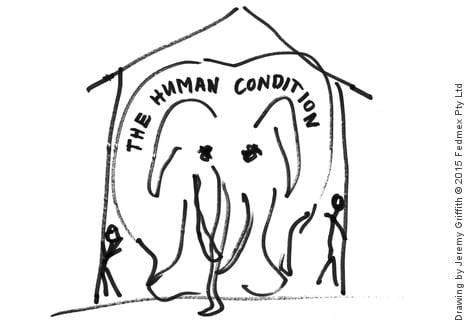



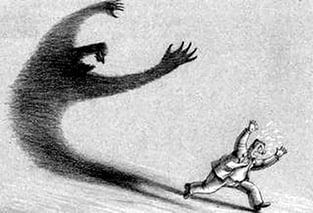
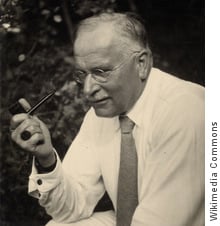



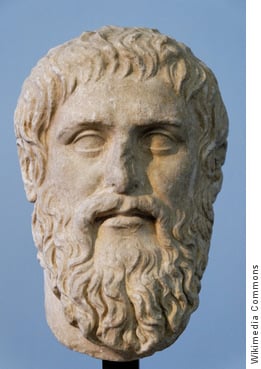
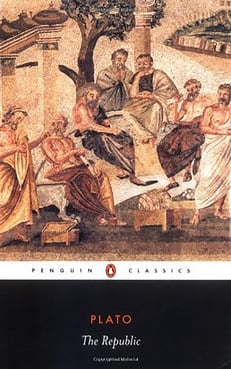
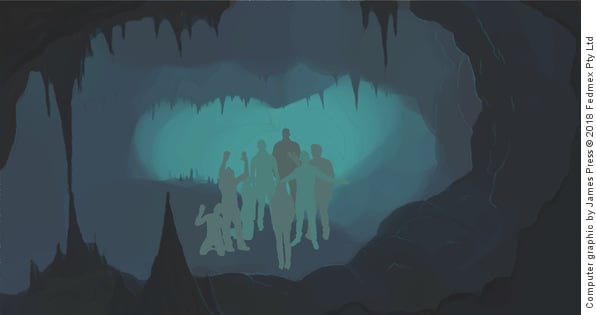


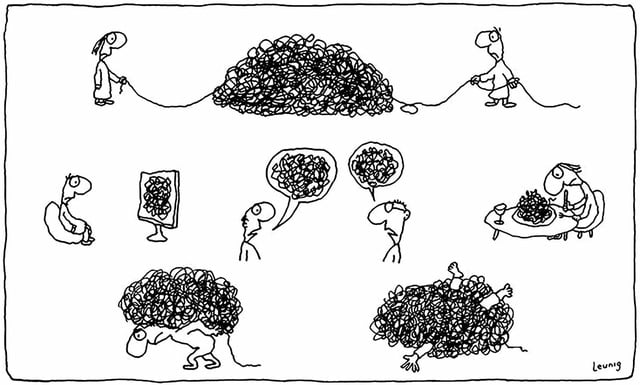

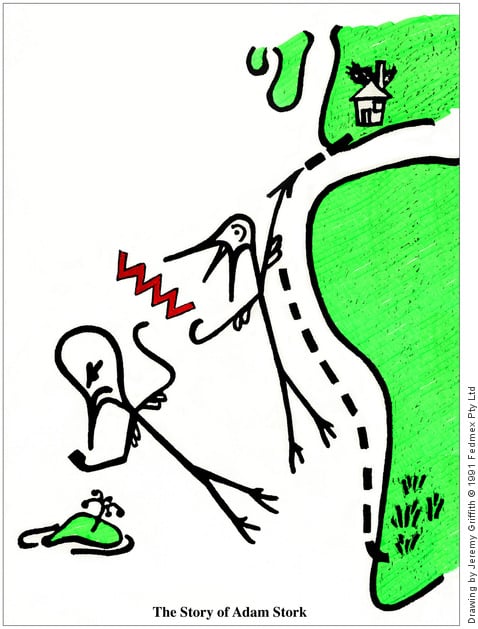
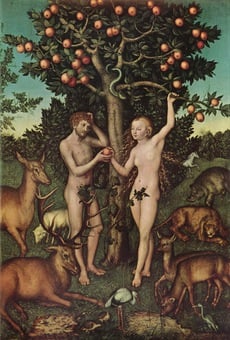
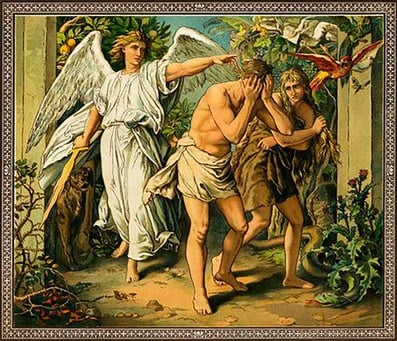
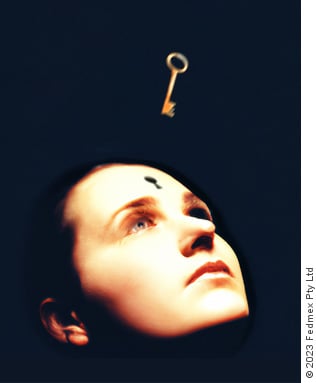
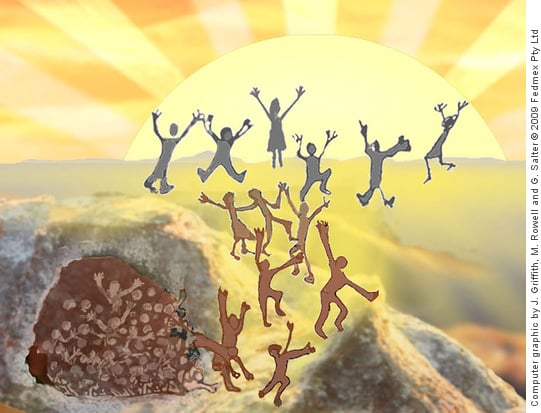
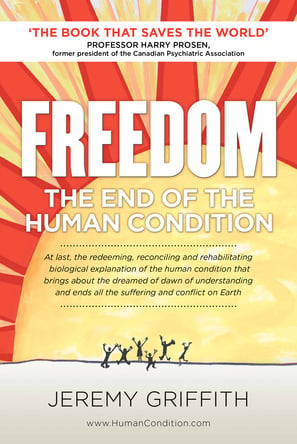
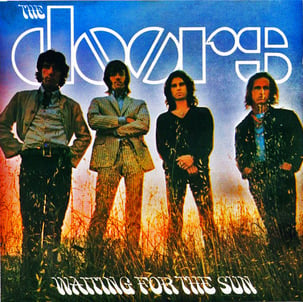
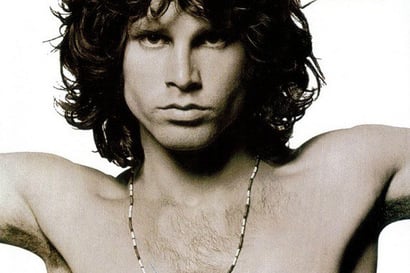

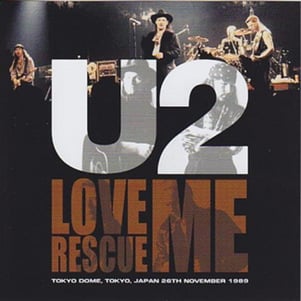

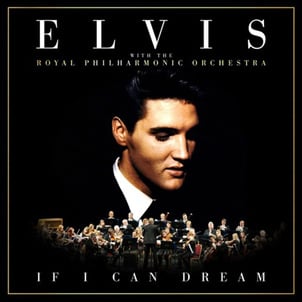
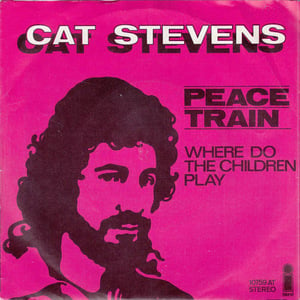
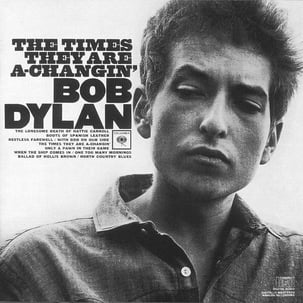
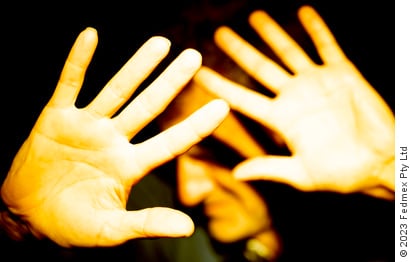
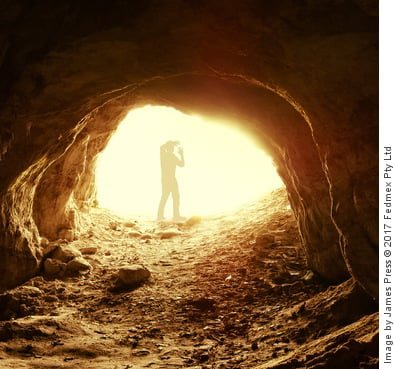
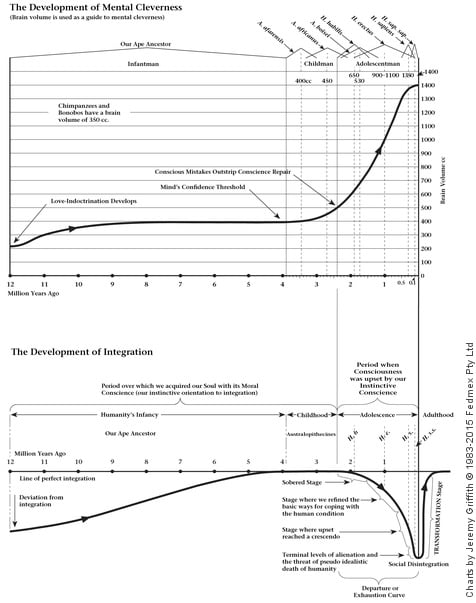
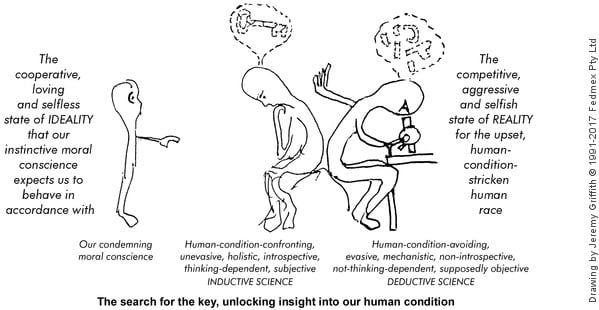
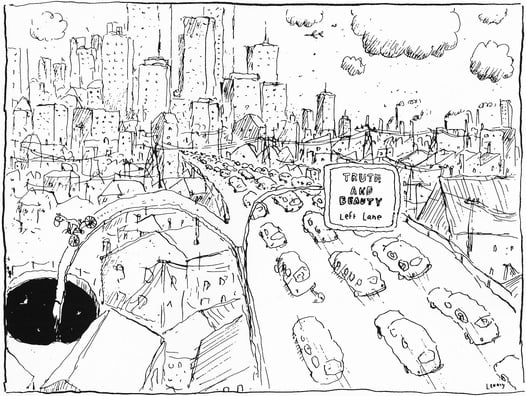
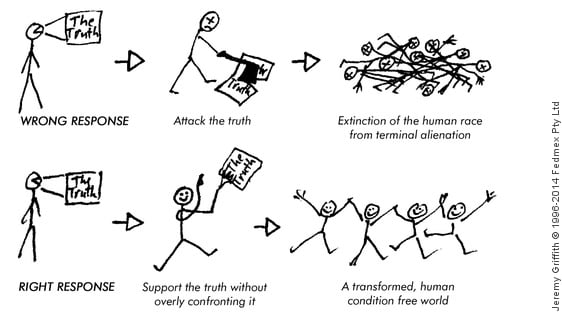

Please wait while the comments load...
Comments